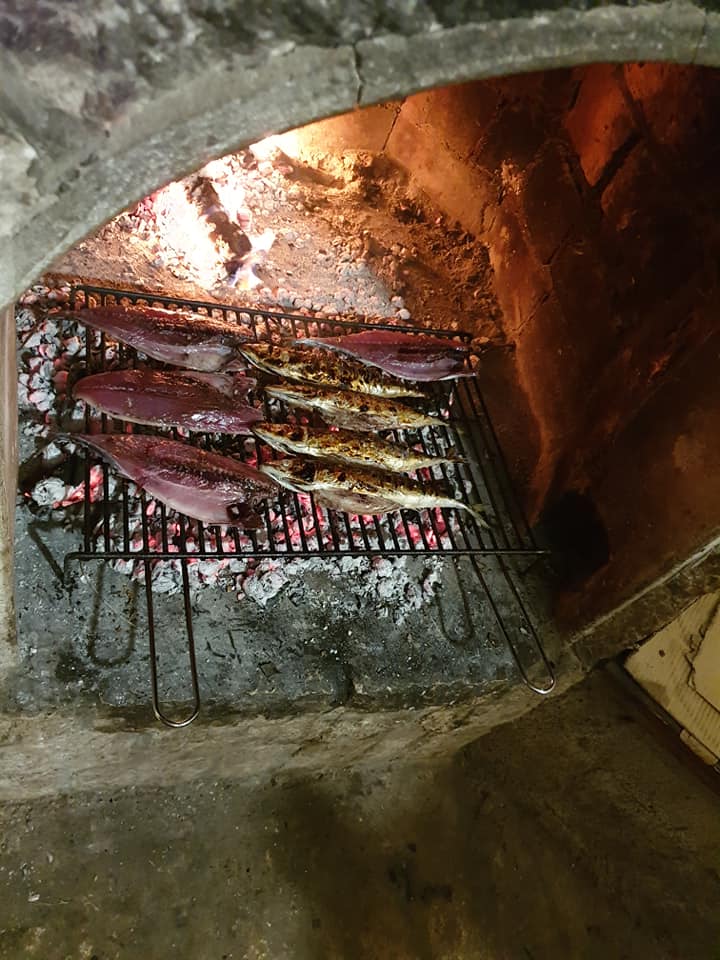CES Releases Beneficiary List: Which Croatian Employers Received Grants?
The coronavirus pandemic has caused not only a global health crisis but a continually unfolding economic one. Croatia, despite its excellent and stringent anti-epidemic measures, hasn't managed to avoid the tremendous and sudden negative economic impact the virus has had. Owing to that, the Croatian Government came forward with economic measures to help stop the domestic economy from sinking, and Croatian employers have been entitled to numerous benefits owing to its introduction.
Just which Croatian employers have received grants from the government, and how much exactly have they been provided with? The issue of transparency is a hot one in Croatia, and the desire for everyone to be able to see exactly where the state grants are going has been a subject of much discussion.
As Poslovni Dnevnik writes on the 29th of April, 2020, a total of 1.5 billion kuna in support was received by almost 84,000 Croatian employers for nearly 485,000 workers, Prime Minister Andrej Plenkovic stated on Wednesday.
''The government has responded quickly and generously to Croatian employers to make sure they have access to minimum wage funds. That measure was quickly introduced. Within ten days of receiving a request [for the grant by a Croatian employer], that request was realised and everything was done completely transparently. I'd like to reiterate the fact that almost 84 thousand companies received grants for almost 485 thousand workers for the first round of support of 1 billion and 550 million kuna.
The Croatian Employment Service (CES) and the Tax Administration will ensure that no abuse of the measure occurs, and the Ministry, in cooperation with the CES, will definitely act swiftly and efficiently for April, too, with the amount for April being 4,000 kuna,'' said Plenkovic.
The largest number of grants - 77,057 of them, were paid for workers employed by micro-employers which have up to 10 employees. For employees working for small businesses, 5,876 grants were paid out, for medium-sized companies (boasting 51 to 250 employees) 889 grants were paid, and for large companies (with more than 250 employees) 147 grants were paid.
The largest share of government aid seekers lies among micro-entrepreneurs - making up 92 percent. Small businesses make up seven percent, medium-sized companies make up one percent, and large companies make up 0.03 percent.
You can find out more about the grants Croatian employers have received, and futher support, by clicking on the links provided below:
For more on coronavirus in Croatia, visit our dedicated section.
Alemka Markotic Discusses Potential Reintroduction of Coronavirus Measures
Alemka Markotic has discussed the potential reintroduction of certain coronavirus measures should the epidemiological situation alter once again.
The coronavirus pandemic has shaken an unexpecting world, and Croatia has rather surprisingly handled it exceptionally well. Boasting some of the best results with some of the most stringent anti-epidemic measures in the world according to an Oxford University study, Croatia has been astounding in its response. The number of infections has remained low, the death rate even lower. These are results few could have predicted for a country so close to Italy.
Alemka Markotic of the ''Dr. Fran Mihaljevic'' Clinic for Infectious Diseases in Zagreb has become a household name over the last few weeks. Having been drawn as a superhero by a young boy from Nustar, Alemka won't quickly be forgotten after the pandemic passes.
As Poslovni Dnevnik writes on the 29th of April, 2020, Alemka Markotic has provided a response to the question on everyone's lips as the anti-epidemic measures begin slowly being loosened up: What if there is a sudden increase in newly infected people?
Director of the Infectious Diseases Clinic “Dr. Fran Mihaljevic ”commented on the possible return of measures and restrictions due to the coronavirus epidemic.
"We're on the second day of loosening the measures, it can be seen that there are more people out there and there are more crowds, but it seems to me that the majority of people are still adhering to the measures that have been recommended," the director of the ''Dr. Fran Mihaljevic'' Clinic for Infectious Diseases told RTL Direct.
What if there is a sudden increase in the coronavirus infection rate?
"We've been communicating clearly from the beginning. It was emphasised that the measures would be gradually eased, that we're ask people to please continue to respect social distancing, hygiene measures… If we pay attention to this, I think we'll be able to continue the gradual loosening of measures. If the number of infected people increases, then we'll have to identify where the measures didn't produce a good result and those parts of the measures will probably need to be reintroduced,'' said Alemka Markotic.
Many countries have made it mandatory to wear masks when outside near others, but Croatia isn't among them.
"I think the CIHI and epidemiologists have clearly communicated that it's advisable to wear masks in public, when in closed quarters. I think that is absolutely clear to our people here and that they will respect these measures,'' Alemka Markotic concluded.
For more on coronavirus in Croatia, follow our dedicated section.
Hoće li Hrvatska biti bolje mjesto nakon korone? Počinjem vjerovati
29. travanj 2020 - Uz svu zdravstvenu prijetnju virusa, pad gospodarstva i probleme mentalnog zdravlja, je li moguće da će Hrvatska nakon korone zapravo postati bolje mjesto za život? Počinjem vjerovati, a mislim da nisam ni usamljen.
Tko je osoba koju poznajete, a koja je najmanje pogođena koronavirusom? Odvojite malo vremena za razmišljanje, i dok to radite, dopustite da vam ispričam priču o svom legendarnom puncu Franku. Jer on je ključni dio mog razmišljanja da bi Hrvatska poslije korone mogla i trebala postati i puno bolja Hrvatska od one koju trenutno imamo. Kako bih vam objasnio svoju logiku, dopustite mi da vam ispričam nešto o svom puncu.
Franku sigurno nije bio lako u životu, a ipak ga nikad nisam čuo kako se na to žali. Bio je jedno od 10 djece u selu Brusje na Hvaru, te je svaki dan morao pješačiti 6 km do škole u gradu Hvaru, te ponovo 6 km kući. Odjeća je bila iznošena, a hrana oskudna. Luksuzi su bili prava rjetkost, a on nikada u životu nije ništa prerano odbacio.
Prije 50 godina uštedio je malu svotu novca i kupio 360 m2 poljoprivrednog zemljišta na brdu ispunjenom drvećem s pogledom na stari grad Jelsu. Svi su mislili da je lud i da je bacao novac.
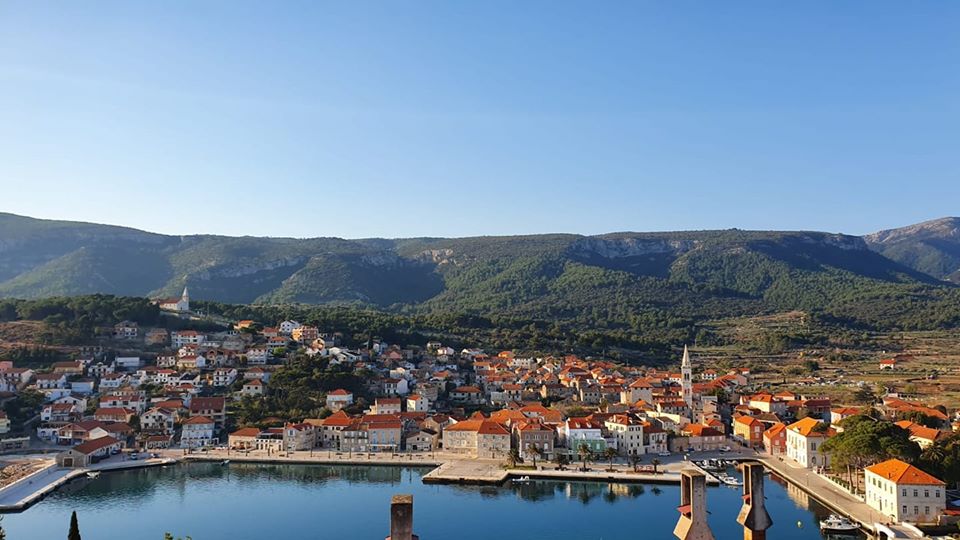
Ali Franko je znao što radi i imao je dugoročnu viziju budućnosti. Komad po komad, kat po kat, polako je gradio svoju obiteljsku kuću, zajedno s apartmanima za iznajmljivanje, prihodom od kojeg je financirao izgradnju sljedećeg kata. Sve je to bilo bez kredita, iz godine u godinu.
Rat je došao 1991. godine, a Franko je kupio zemljište kako bi uzgajao hranu da bi prehranio obitelj u slučaju da neizbježne ratne restrikcije postanu stvarnost. Ljubio je tu zemlju (i susjedne parcele koje je kupio u sljedećim godinama) i svakodnevno provodio tamo sate. Gotovo 30 godina kasnije proizvodi veliku količinu hrane kojom nas hrani tijekom krize uzrokovane koronom.
Nakon što je svo četvero svoje djece omogućio sturidanje , što je prilika koju sam nikada nije imao, a bez ikakvih dugova, život se odvija prilično slično kao prije. Turizam će ovog ljeta biti smanjen, ali životni temelji – zdrav način života na prekrasnom otoku kojeg rijetko napušta, uz domaću hranu, vino, maslinovo ulje – ostaju.
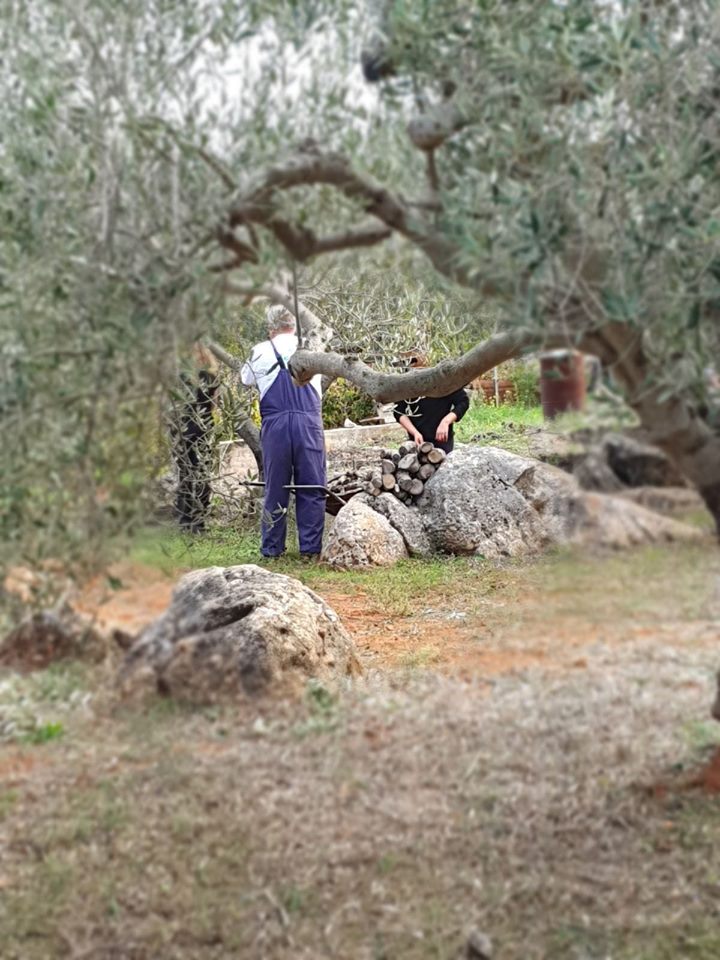
Izuzetno poštujem svog punca zbog svega što je postigao od tako skromnog početka, a ponekad poželim da je dobio zeta koji je čovjek od zemlje, a ne ovog debelog blogera koji stalno pije pivu.
Moj punac je dokaz da se u Hrvatskoj može voditi zdrav i ispunjen život koji se temelji na samoodrživosti i kupnji lokalnih namirnica.
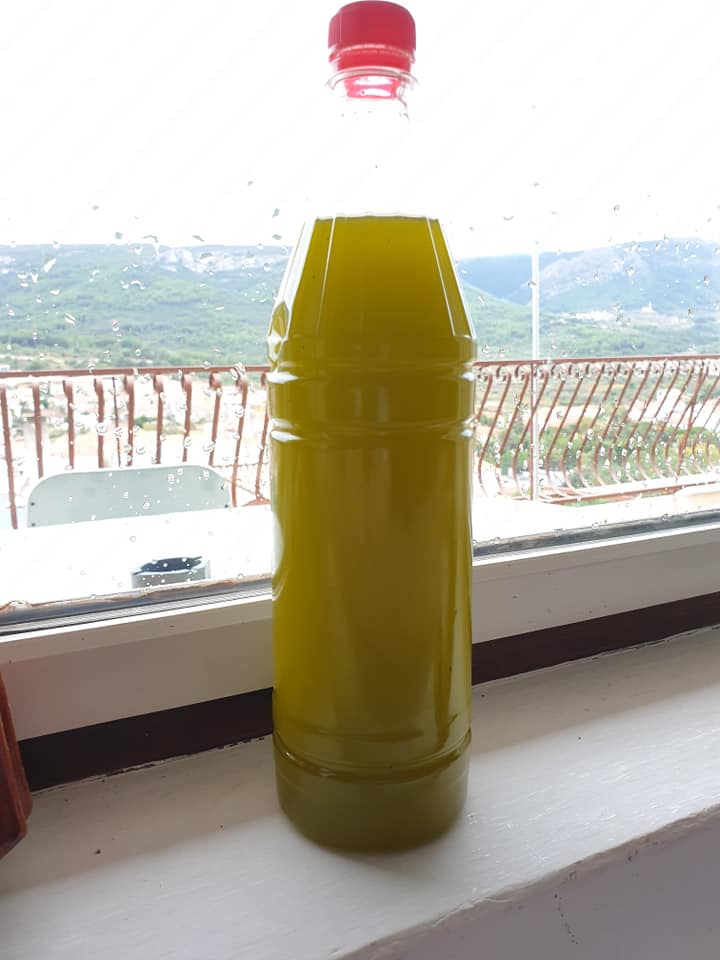
Tema kupovine lokalnog širi se po cijelom svijetu, jer nas je korona prisilila na temeljito preispitivanje gotovo svakog aspekta našeg života. Prisilna samoizolacija i ponovna procjena naših životnih stilova bilo je iskustvo čišćenja za mnoge koji su shvatili koliko im je malo potrebno za preživljavanje i koliko je viška stvari u njihovom životu posve nepotrebno.
Neke stvari će se možda zauvijek promijeniti, poput povećanih zdravstvenih mjera i manje putovanja, ali korona je Hrvatskoj donijela i puno pozitivnih stvari. Pogotovo ako njezini ljudi iskoriste ove mogućnosti ovako neočekivanog izvora. Ja se sve više nadam – gotovo sada očekujem – da će Hrvatska poslije korone biti bolje mjesto za sve nas. Postoji nekoliko aspekata mog optimizma.
Kupujte lokalno i neka Slavonija ponovo hrani cijelu regiju
Jučer sam napravio svoj prvi Zoom video intervju u svom životu. Bilo je to sa slavonskim poljoprivrednikom/poduzetnikom čija je obitelj gotovo 40 godina proizvodila i prerađivala hranu u regiji koja je nekad hranila ne samo Hrvatsku, već i velik dio bivše Jugoslavije. Jedva čekam da objavim intervju i priču, jer je to bila jedna od najzanimljivijih stvari koju sam ikada učinio. U intervjuu smo razgovarali o razlikama u uzgoju hrane u Slavoniji kad je to bila bogata regija i proizvodnji hrane u Slavoniji danas.

Može li Slavonija još jednom nahraniti Hrvatsku, a možda i njezine susjede?”, Pitao sam.
“Da.”
Očito će rješenje uključivati malo više od riječi “da”, ali razmislite o tome na trenutak. Doba turista koji masovno šalju svoju gotovinu, a sve što trebamo je čekati da dođu, dolazi svome kraju. Zaboravimo prošlost i pogledajmo Hrvatsku danas.
Može li se ona sama prehraniti? Da.
Jedan od velikih pozitivnih utjecaja ove krize bio je taj da je velik broj ljudi počeo kupovati lokalno. Mali OPG-ovi svoje proizvode stavljaju na raspolaganje putem društvenih mreža, a ljudi naručuju. Ovdje na Hvaru postoji sjajna opcija za isporuku lokalnih proizvoda putem Interneta, koja pokriva Hvar, Vis i Šoltu. Onaj luđak iz Đurine hiže u Varaždinskim toplicama, Nikola Božić, obilazi stalno cijelu zemlju dostavljajući steakove najviše kvalitete i druge premium proizvode OPG-ova.
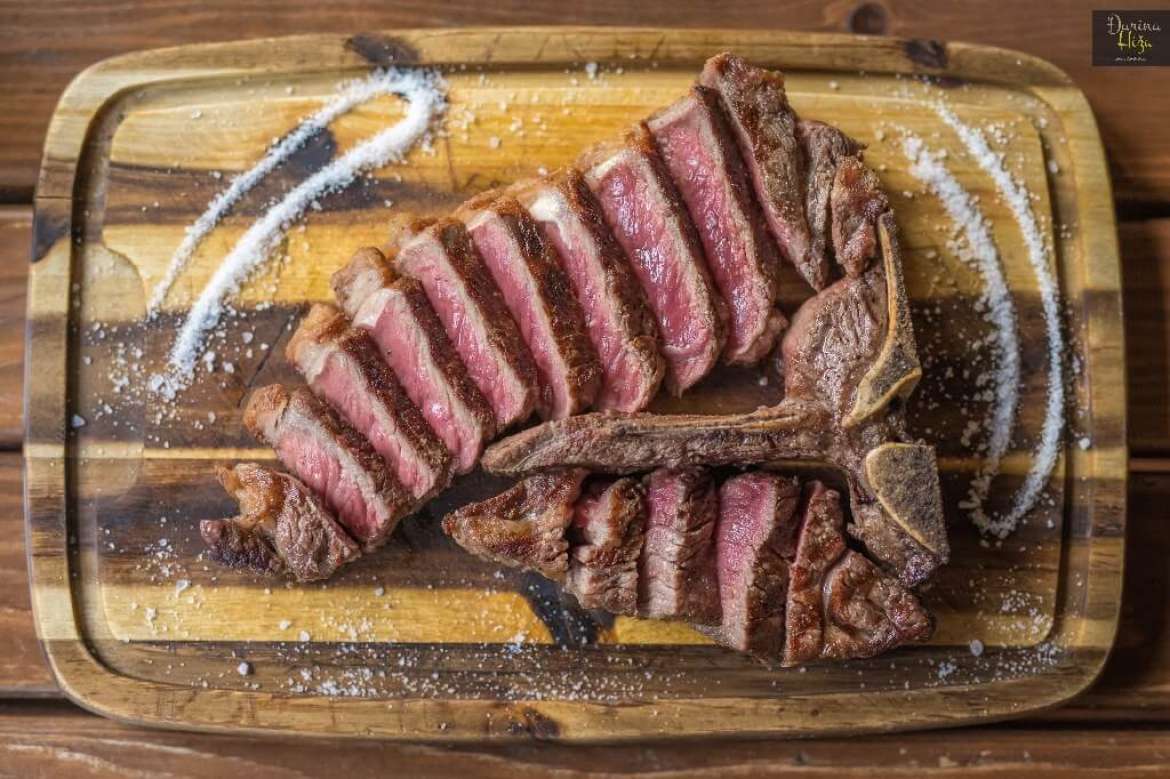
Sve više ljudi se približava ideji uzgoja i kupovine lokalnog. Hrvatska ima izvrsnu hranu, a sve više ljudi shvaća ludost uvoza proizvoda kada ih možemo uzgajati sami. Mislim da je Karlovačka županija prošlog tjedna najavila sredstva za razvoj neiskorištenog obradivog zemljišta. Tehnologija je prijatelj kupovine domaćeg, a nove distribucijske mreže poput one koje razvija Nikola Božić izvrsnu će hrvatsku domaću proizvodnju učiniti znatno dostupnijom krajnjem korisniku.
Vratiti hrvatski poljoprivredni kapacitet tamo gdje ga nije bilo neće biti lako, ali isto tako nije nemoguće. Uz toliko nadolazeće nezaposlenosti, stvorit će radna mjesta – i na kraju izvoz.
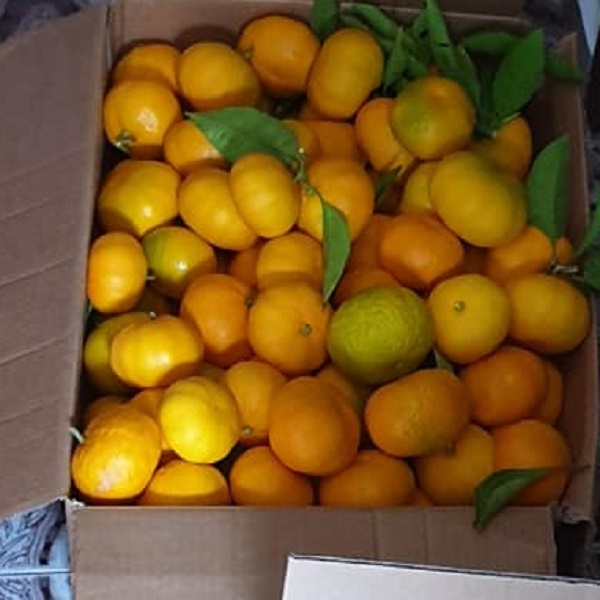
Život bi mogao KONAČNO postati dovoljno neugodan da će Hrvati prosvjedovati
‘Mogu li se Hrvati ikad ujediniti ako nisu bili napadnuti’?
Prije otprilike 18 mjeseci napisao sam članak pod nazivom ‘Mogu li se Hrvati ikad ujediniti ako nisu bili napadnuti’? Ovo je zemlja koja na ulice svog glavnog grada može primiti 550.000 ljudi kako bi dočekali heroje Svjetskog kupa, ali nimalo slične brojke kada su u pitanju prosvjedi. Hrvati se jako žale zbog načina na koji upravljaju ovom zemljom. Ali žale se u u kafićima i s ogromnom vojskom virtualnih ratnika. Ali kako ih natjerati da fizički marširaju na Zagreb, prosvjeduju i zahtijevaju promjene? To se jednostavno ne događa (ili vrlo rijetko i u mnogo manjem broju).
A jedan od razloga je to što je život u Hrvatskoj mnogima zapravo preugodan. Hrvatska ima jednu od najviših stopa vlasništva kuća i stanova u svijetu, što je ugodno u vrijeme krize. Ona također ima mnogo ljudi koji žive od turizma i zarađuju dovoljno za 4-5 mjeseci u godini da ne moraju raditi ostatak godine. I dok vlasništvo nad kućom i sposobnost uzgoja hrane ostaje, taj je laki prihod mnogima nestao - možda i zauvijek za mnoge.
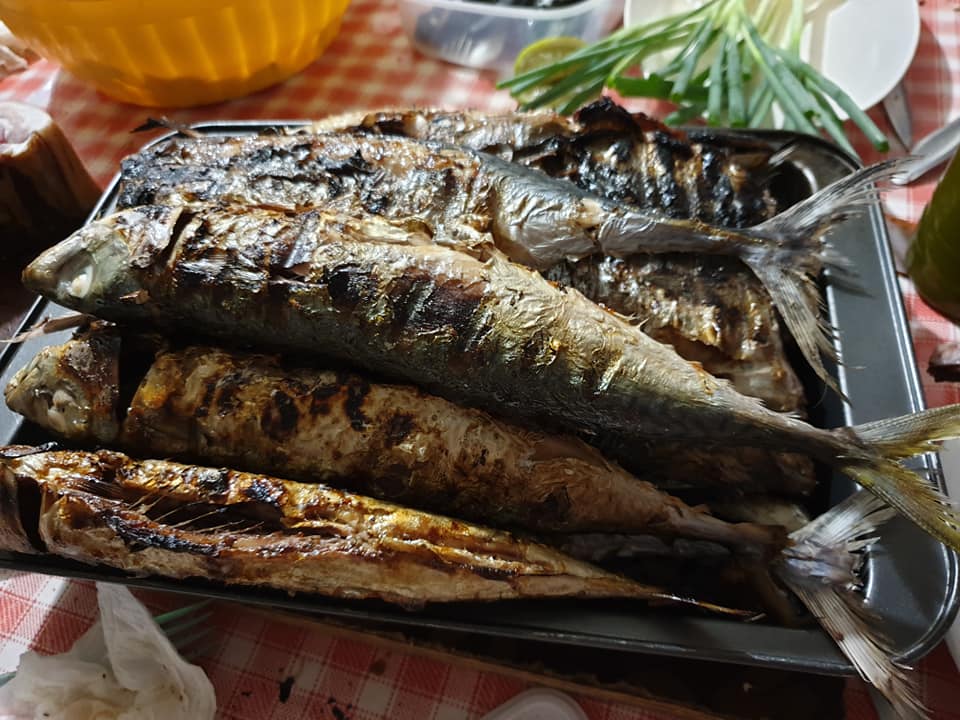
S čak 300.000 pretpostavljenih izgubljenih radnih mjesta, kao odgovor na početne vladine ekonomske mjere, bilo je jasno da život ne samo da će postati manje ugodan, već i za mnoge dovoljno težak da Hrvate dovoljno razljuti da nešto učine. Jedna od najboljih inicijativa posljednjih godina u Hrvatskoj bila je Udruga Glas Poduzetnika, koja okuplja privatne poduzetnike te koji broji gotovo 60.000 članova i koja je već postigla veliki uspjeh svojim usuglašenim pritiskom na vladu za učinkovite mjere i reforme. Njihov rad možete pratiti na našim stranicama.
Mainstream mediji sada aktivno provode kampanje za Reforme Odmah, a ovaj članak iz 24 sata, naprimjer, daje sjajan pregled izbora pred kojima se nalazi Hrvatska - Hrvatska ne može više čekati, trebamo reforme odmah.
Kralj Vili kao prototip, vrijeme je za sljedeću generaciju političara
Da ste prije ove korona krize ljude na ulici u Hrvatskoj pitali kako će se hrvatska Vlada nositi s njom, ne biste se osjećali samouvjereno. Jedna od najboljih stvari koja se dogodila Hrvatskoj je što je ostala sigurnom, uklanjanje prethodnog ministra zdravstva zbog navodnih (moja nova omiljena riječ) nepravilnosti u njegovom portfelju imovine. Hrvatska je dobila novog ministra zdravstva Vilija Beroša, posvećenog, kvalificiranog, odlučnog, transparentnog, komunikativnog i pristupačnog. Postoji samo nekoliko zemalja koje su se suočile sa zdravstvenom prijetnjom korone poput Hrvatske, a primjer Beroša i njegovog tima pokazao je da je moguće nešto što se rijetko viđa – ministar koji radi za narod, a ne za sebe.
I budući da su to vidjeli, glas javnosti zahtijevat će više takvih političara. Uhljebistan je zvijer, a za ubiti tu zvijer trebat će nam više od korone i ekonomske katastrofe. Ipak, nikad nije postojala bolja prilika da se potaknu promjene. Uklonite Uhljebistan, vratite se korijenima Hrvatske sa angažiranom dijasporom spremnom ulagat i budućnost Hrvatske je nevjerojatno svijetla
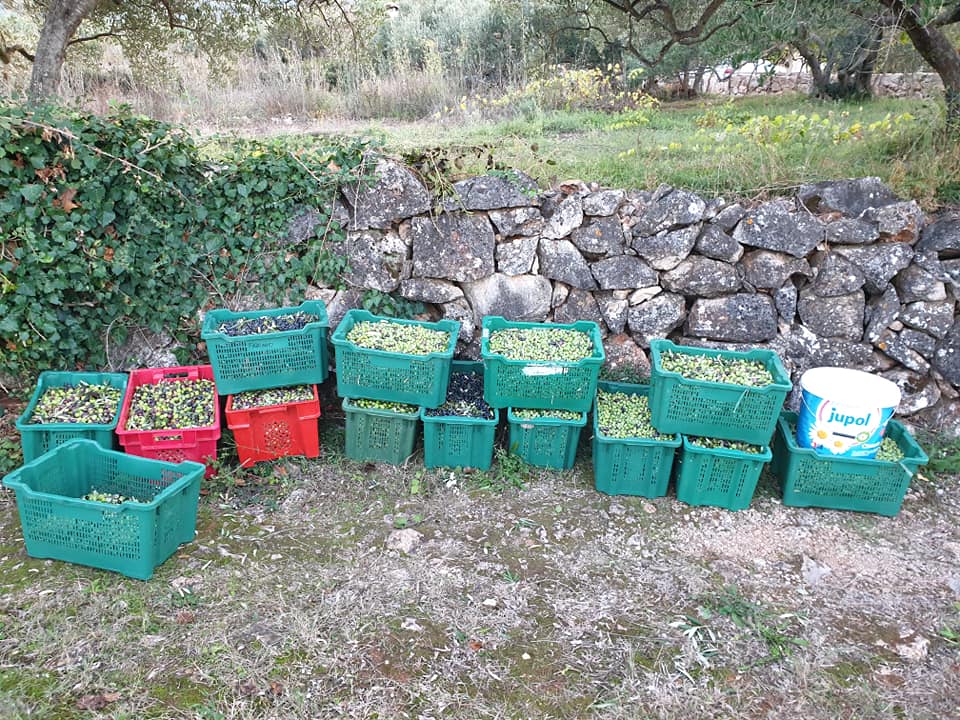
Transparentnost u digitalnoj Hrvatskoj 2.0 nakon korone - ubrzani proces
Borba protiv Uhljebistana ima sve snažnijeg saveznika – digitalizaciju i transparentnost. Ova će kriza samo ubrzati digitalizaciju Hrvatske, kao i uklanjanje potrebe za tolikim procesima koji nisu samo neučinkoviti, već dolaze i sa zdravstvenim (infekcijskim) rizikom i pomažu u financiranju Uhljebistana. Era nabujale birokracije i onih dragih biljega već je bila u posuđenom vremenu, ali sada kada ljudi vide da je ne samo lakše učiniti toliko mnogo stvari putem interneta, nego i mnogo učinkovitije, uspostava postkoronske digitalne Croatia 2.0 će ubrzati.
Šalio sam se s djecom neki dan da smo, kad sam išao u školu, koristili kredu i ploču. To je nešto čega se, naravno, sjećaju, ali hoće li djeca nakon 5 godina? Prisilna prilagodba školovanja preko weba u velikoj mjeri predstavlja veliki uspjeh i nudi neke intrigantne mogućnosti za napredak, kako u razvoju kućnog obrazovanja tako i u pristupu boljem obrazovanju iz drugih zemalja.
A više transparentnosti i digitalnih alata smanjit će i mogućnost Uhljebistana da zahtijeva mito u svakom koraku, potiho kako to čini sad.
Od ekonomije masovnog turizma do poljoprivrede, IT-a i elitnog turizma
Hrvatska ima izvrstan IT sektor, koji se natječe na globalnoj razini u mnogim aspektima. Ovo se ponovno odvija uglavnom kod kuće i lokalno, i vjerojatno će se i dalje širiti i stvarati sjajan prihod za Hrvatsku i njene IT poduzetnike. Na trenutak samo zaboravite na današnju Hrvatsku i zamislite novi model (kada bi se mogli riješiti većine Uhljebistana), koji zamišljam da bi mogao izgledati ovako.
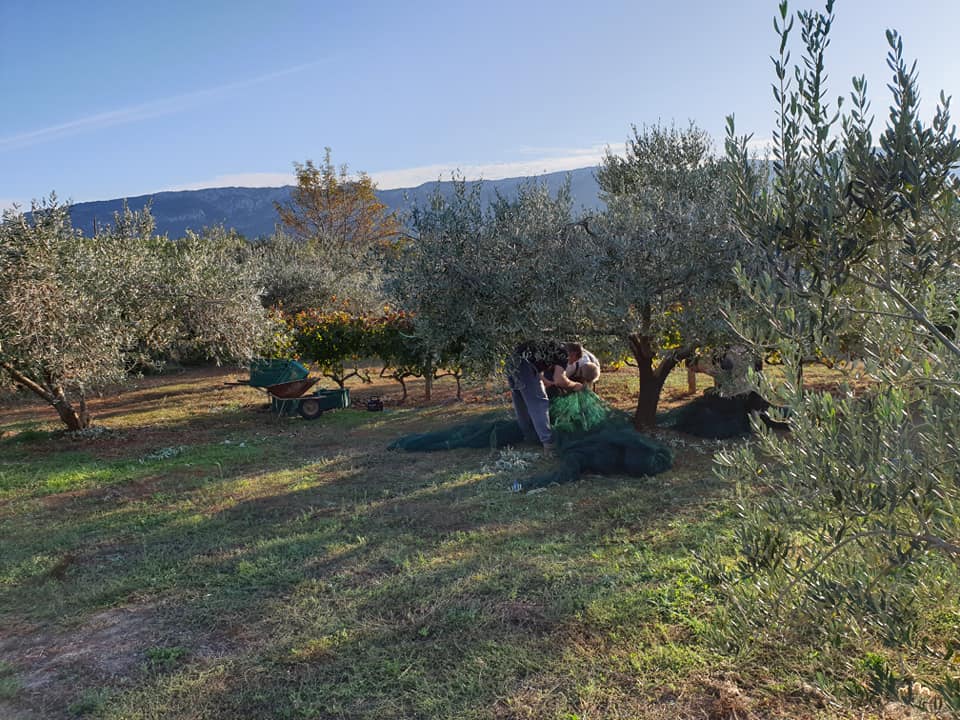
1. Poljoprivredni sektor koji zapošljava mnoge, hrani zemlju i generira izvoz, a sustav za dostavu na kućnu mrežu dovodi najbolju hrvatsku kvalitetu izravno na vaša vrata.
2. IT sektor koji će procvjetati omogućavajući Hrvatskoj stvaranje lokalnih radnih mjesta i ostvarivanje značajnog prihoda
3. Zemlja u kojoj je masovni turizam stvar prošlosti, u kojoj si i domaći turisti mogu priuštiti mirniju obalu po prihvatljivijim cijenama.
4. Država čija je izvanredna prirodna ljepota magnet za eilte, a ne za masovni turizam. I da ne zaboravimo medicinski turizam, još jedan neiskorišteni dragulj Hrvatske.
5. Država čija izuzetna prirodna ljepota i jedinstveni životni stil čine raj za digitalne nomade i udaljene radnike – niša koja će se eksplodirati u narednim godinama
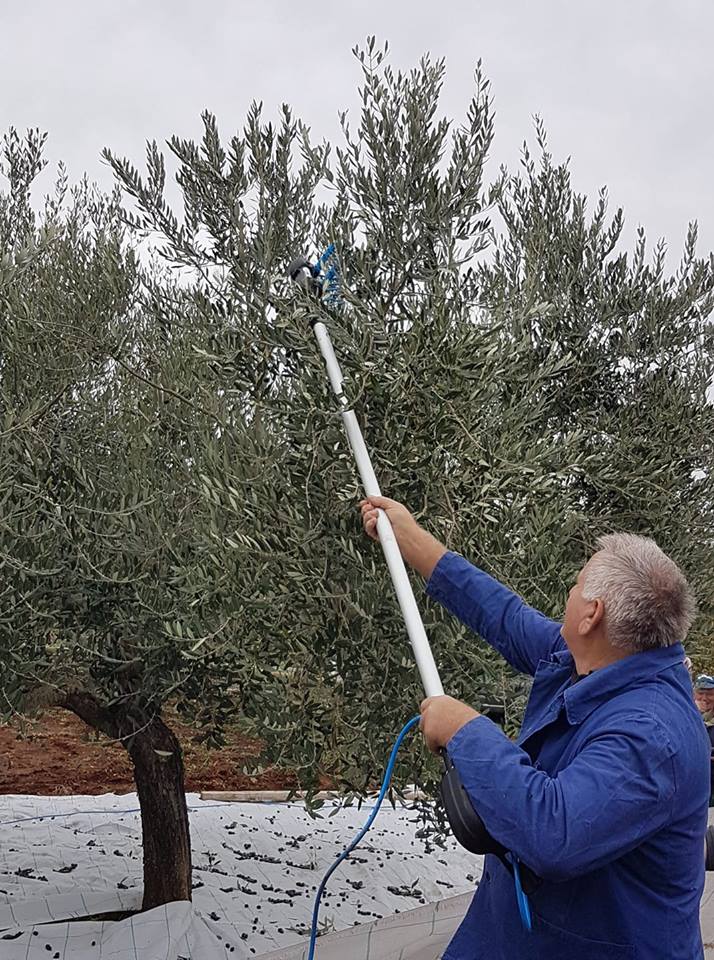
Država koja će se oslanjati na sebe i vlastite resurse. U kojoj će biti puno sretnih ljudi iz njihove lokalne zajednice, baš kakav je i moj Franko.
I koliko će štete sve to nanijeti okolišu u usporedbi s našim trenutnim praksama i strategijama?
Coronavirus: Can We Go to the Coast This Summer? "We Hope So"
As Croatia begins to gradually loosen its anti-epidemic measures, more specifically in three phases, many have begun to hope that normality and the chance to go to the coast this summer are a possibility. However, any move that comes too soon could result in another wave of coronavirus infections...
As Poslovni Dnevnik writes on the 29th of April, 2020, if we move too quickly with the loosening of the anti-coronavirus measures, we will ruin everything we've achieved so far, and then we will need to return to lockdown very quickly, Zvonimir Frka-Petesic said this morning on HRT, talking about the gradual loosening of the protective measures introduced last month because of the ongoing coronavirus epidemic, which Croatia has handled excellently.
"Our goal is to sustainably loosen the measures," added Frka-Petesic, adding that he disagreed with the opinion of some that the measures in Croatia are too stringent when compared to some other countries.
"I fear that those countries that are loosening things far more quickly than we are will have to deal with what epidemiologists call the second wave [of the pandemic]. We don't want that,'' he said.
An epidemiologist from the Croatian Institute of Public Health, Iva Pem Novosel, said they were mostly satisfied with the behaviour of citizens after the loosening of the measures began, but she stated that she wanted to remind people once again that it is very important to continue to stick to all of the measures and recommendations that are still in place, as the danger has not yet passed.
Asked if we could go to the coast this year, Frka-Petesic said he hoped that we'll be able to.
"We're working on it, we're preparing for the season," Frka-Petesic replied, adding that Croatia has never had less competition across the Mediterranean than it has now.
"I believe that given these results, we must all be wise, sensible, and keep our contacts to a minimum, we should keep everything to only what is necessary so that we can all go to the coast together," Pem Novosel told HRT.
For all you need to know about coronavirus in Croatia, follow our dedicated section.
PHOTOS: A Split Spring in Self-Isolation
April 29, 2020 - How does Split look during self-isolation? A collection of photos from our readers.
On day 41, 50, or 500 in self-isolation (depending on your mood), we're relatively sure the flood of emotions everyone is feeling range from the positive 'there is a light!' to those of us going through the motions murmuring 'I'm okay...' to the inevitable 'WAKE ME UP FROM THIS NIGHTMARE'.
All emotions at this time, of course, are warranted.
Those of us in Split, however, are quite lucky. After all, there could be far worse places to be stuck. Not only do we have the Adriatic Sea at our fingertips, but we're surrounded by mountains, forests, and ancient buildings that fuse to form the masterpiece that is the backdrop of our quarantine dreams.
While we are still advised to #stayhome, solo walks and ventures outside are still permitted so long as groups of people don't gather. And with the quintessential spring weather we've been having, it's hard not to get outside to grab a small dose of Vitamin D - even if it's from the comfort of our balcony.
Our always fabulous TCN readers sent in photos of Split over the last month as the typically busy streets emptied to flatten the coronavirus curve.
Whether you're here now or dreaming of your next trip, Split will always be this beautiful.
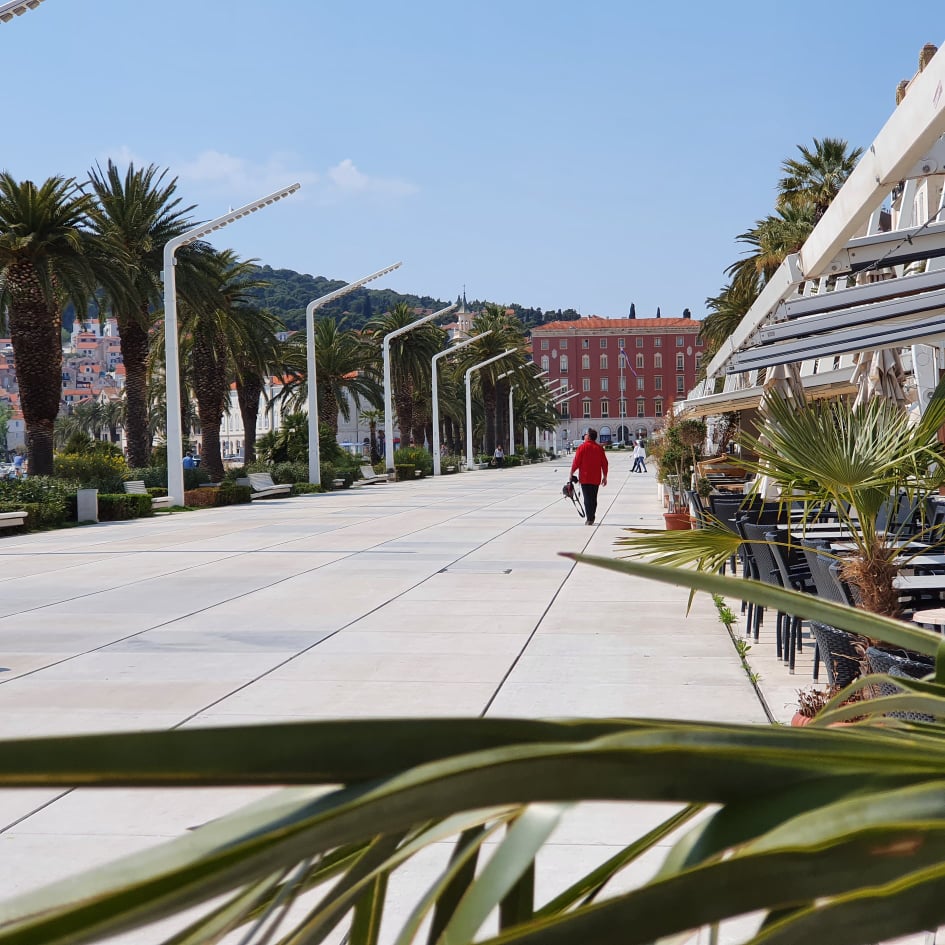
The Riva, almost unrecognizable.
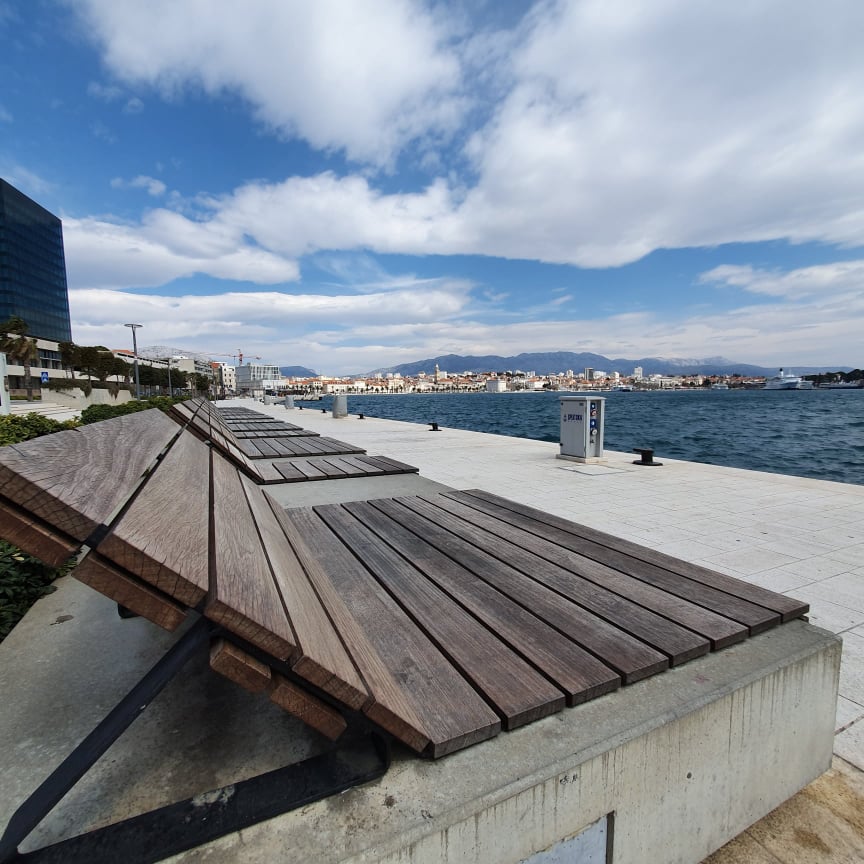
The West Coast without a soul in sight.
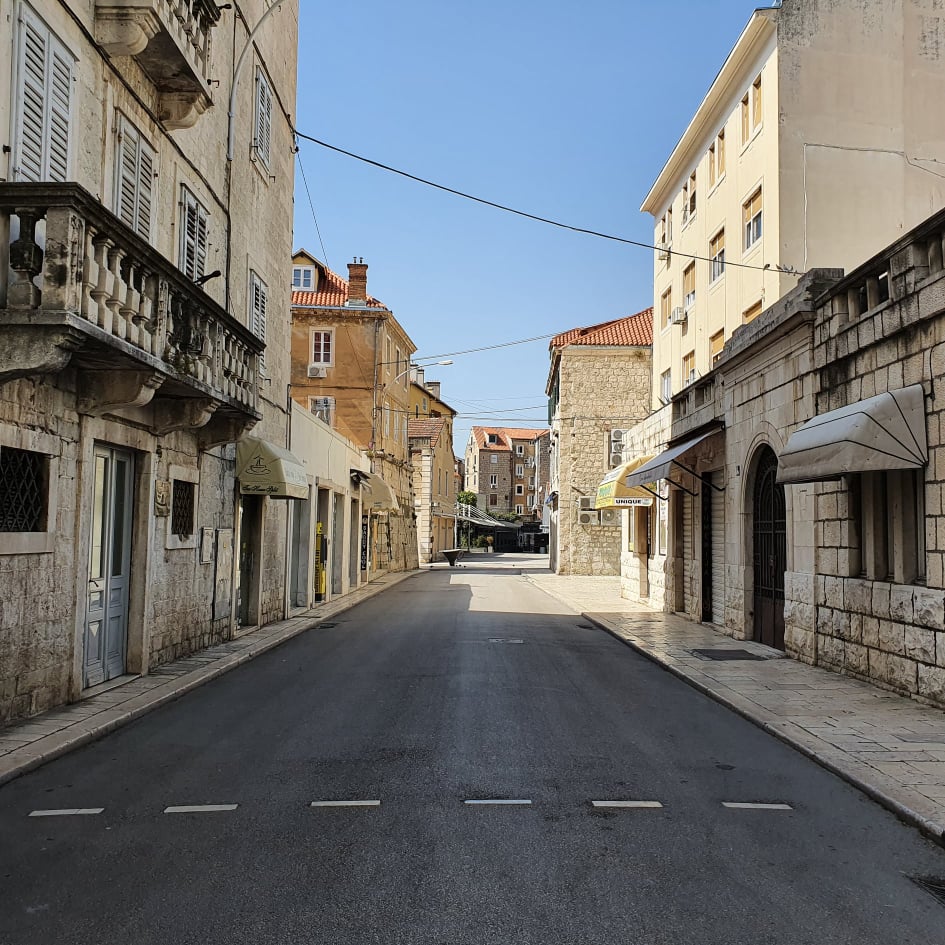
No visitors at FroggyLand, either.
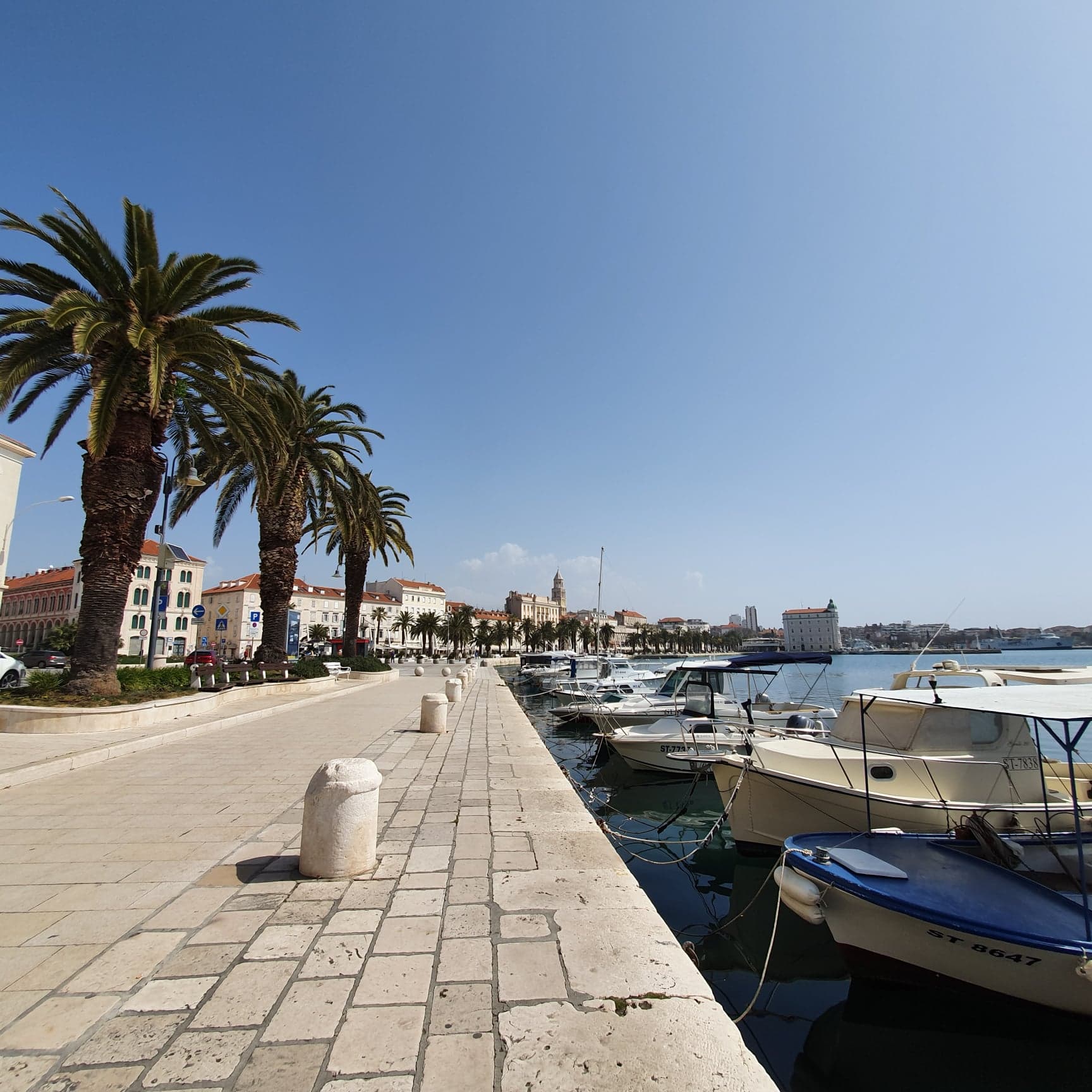
The benches that usually host groups of Croatian singers in the summer are quiet in spring.
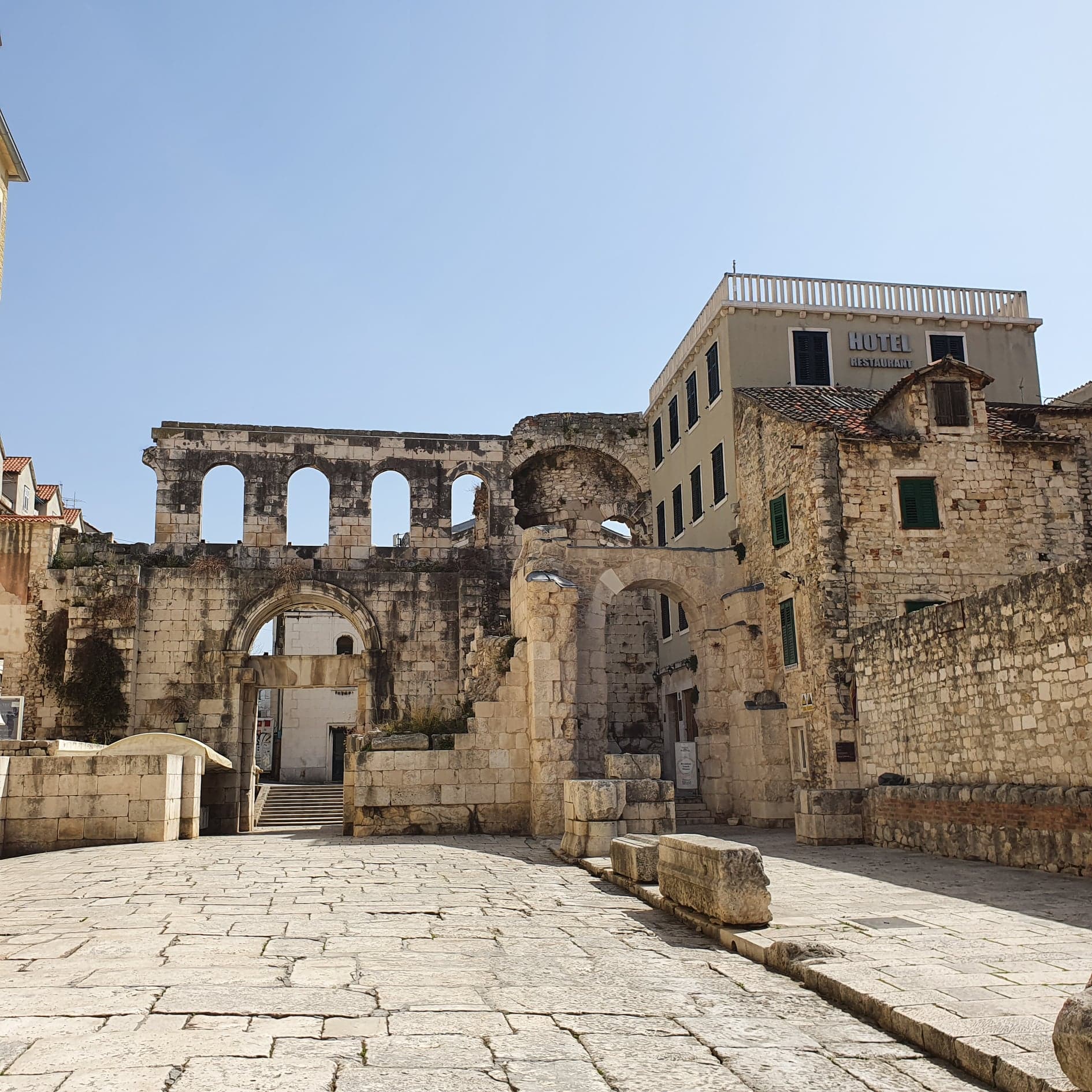
The Silver Gate of Diocletian's Palace.
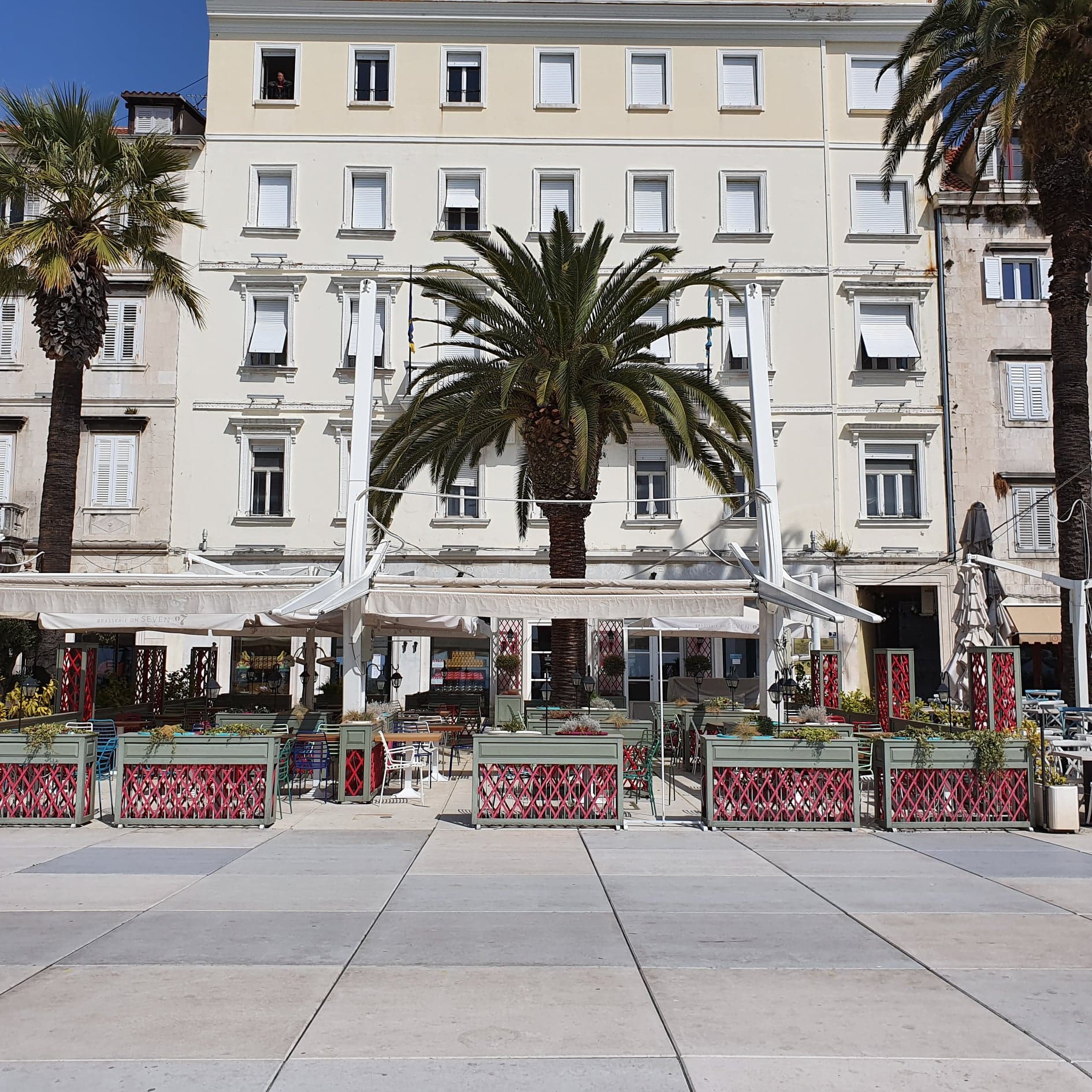
Riva favorite Brasserie on 7. We can't wait to share a coffee with you here again.
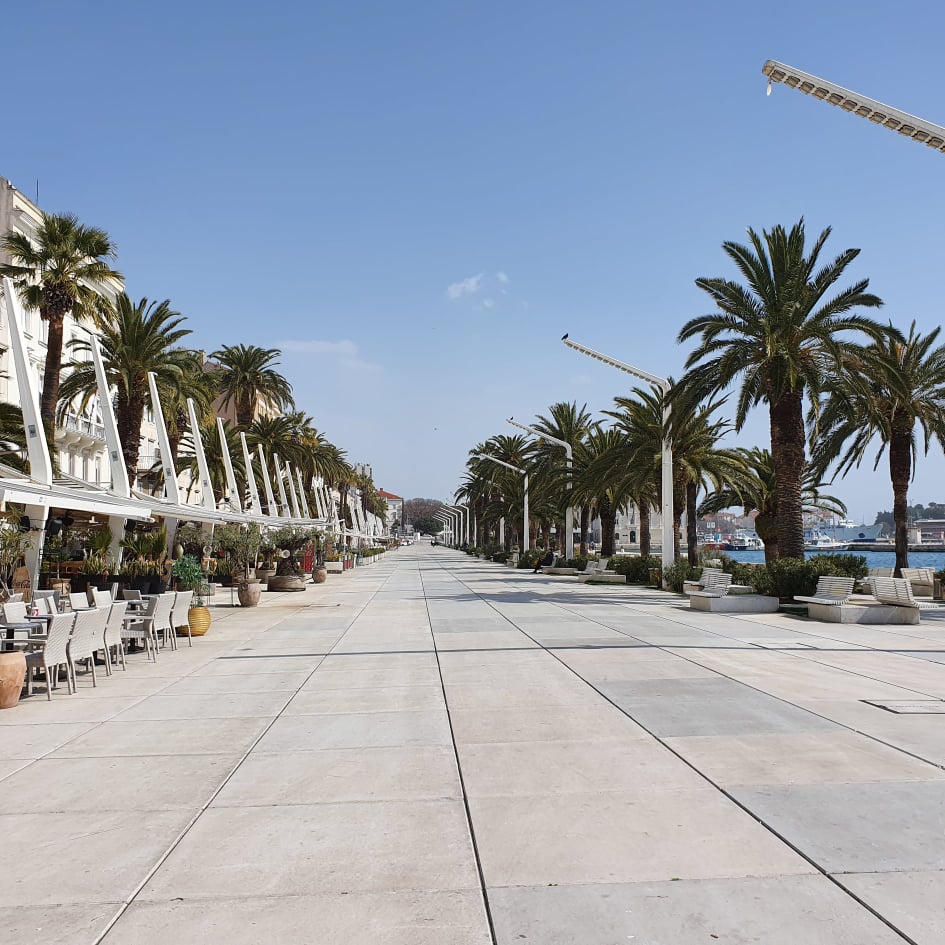
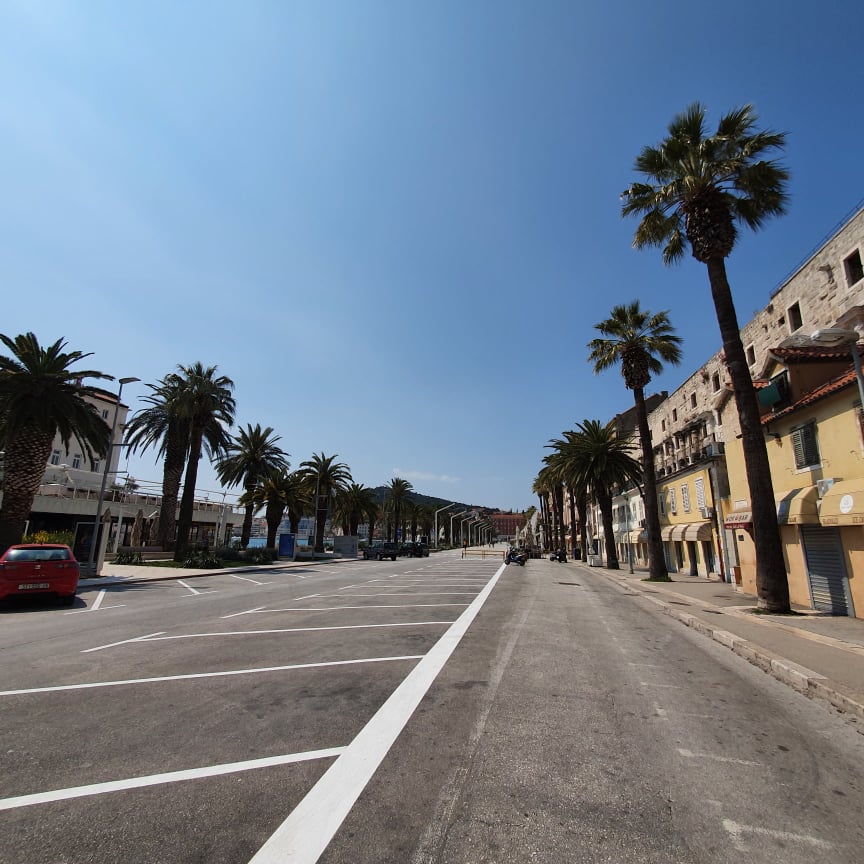
The parking for the Riva, usually lined with vehicles, mopeds, and shoelace dealers.
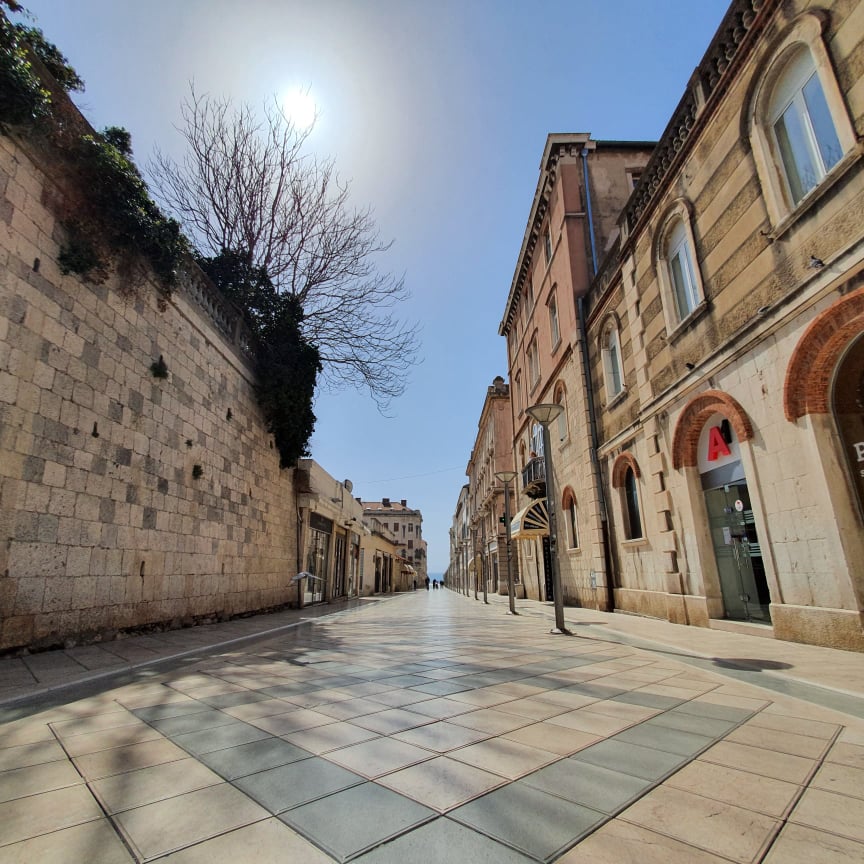
Vacant Marmontova.
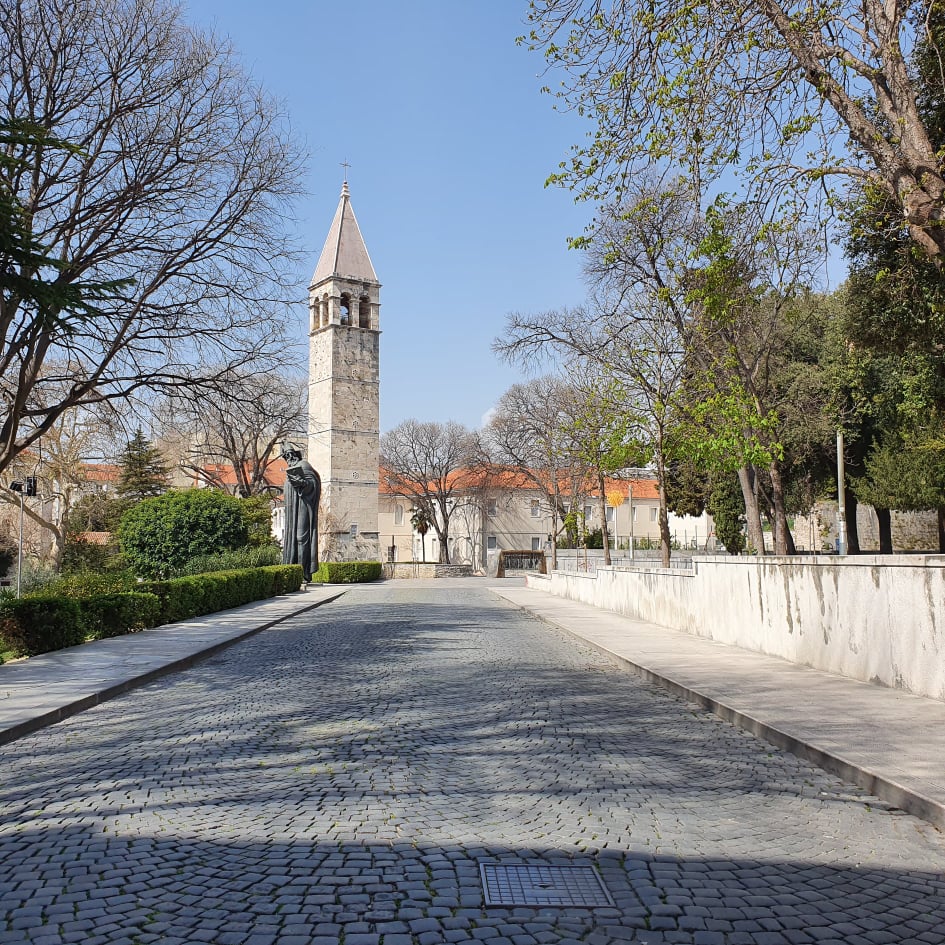
Grgur Ninski looking extra regal.
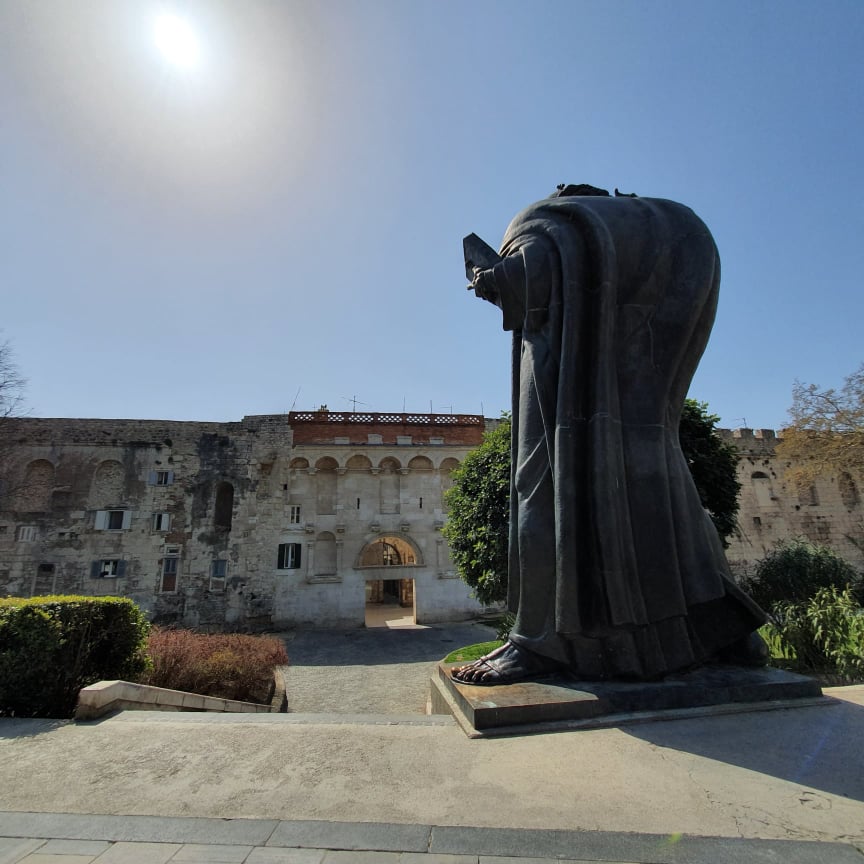
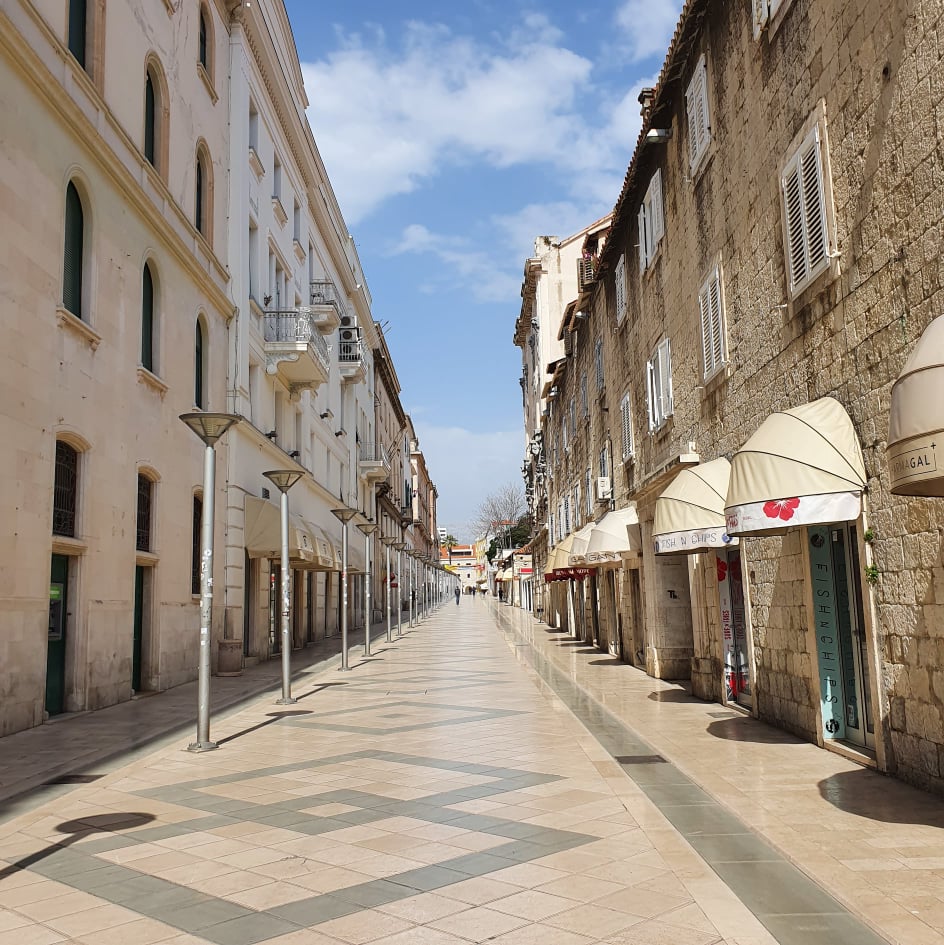
Split's famous shopping street... without shoppers.
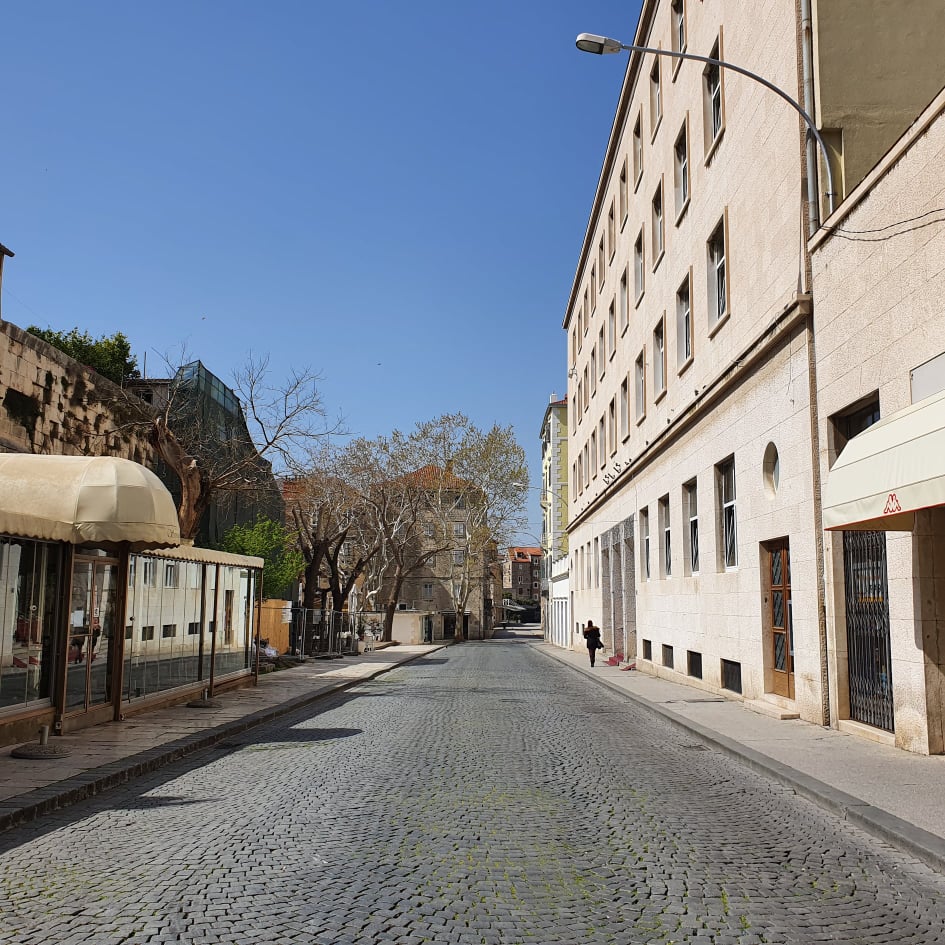
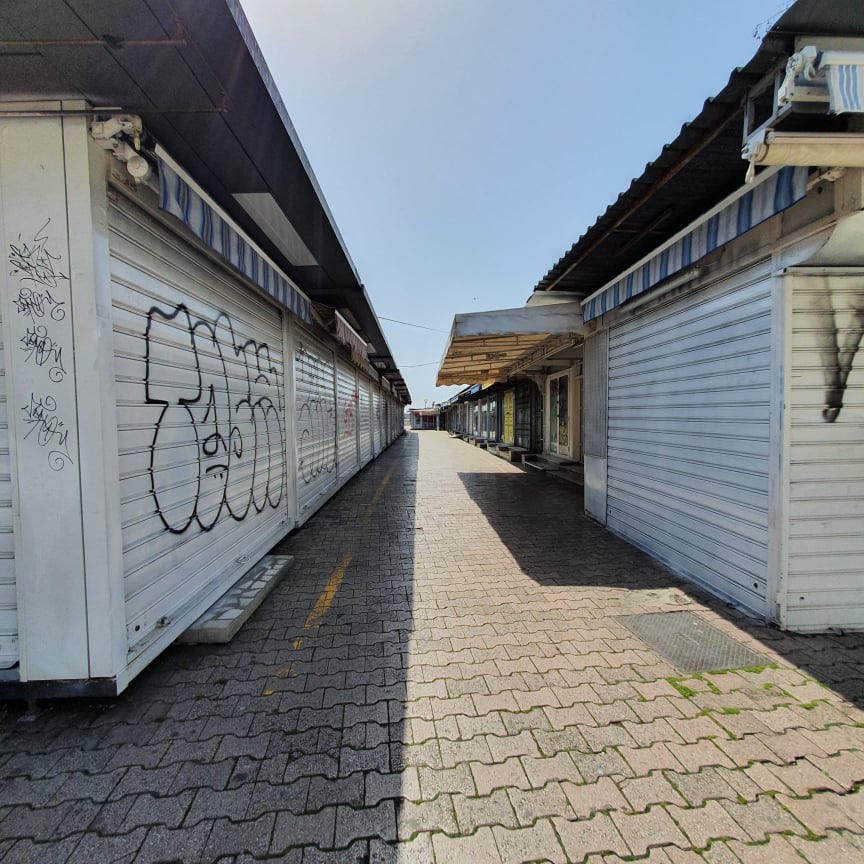
Usually bustling with buyers looking for everything from smoked meat to underpants.
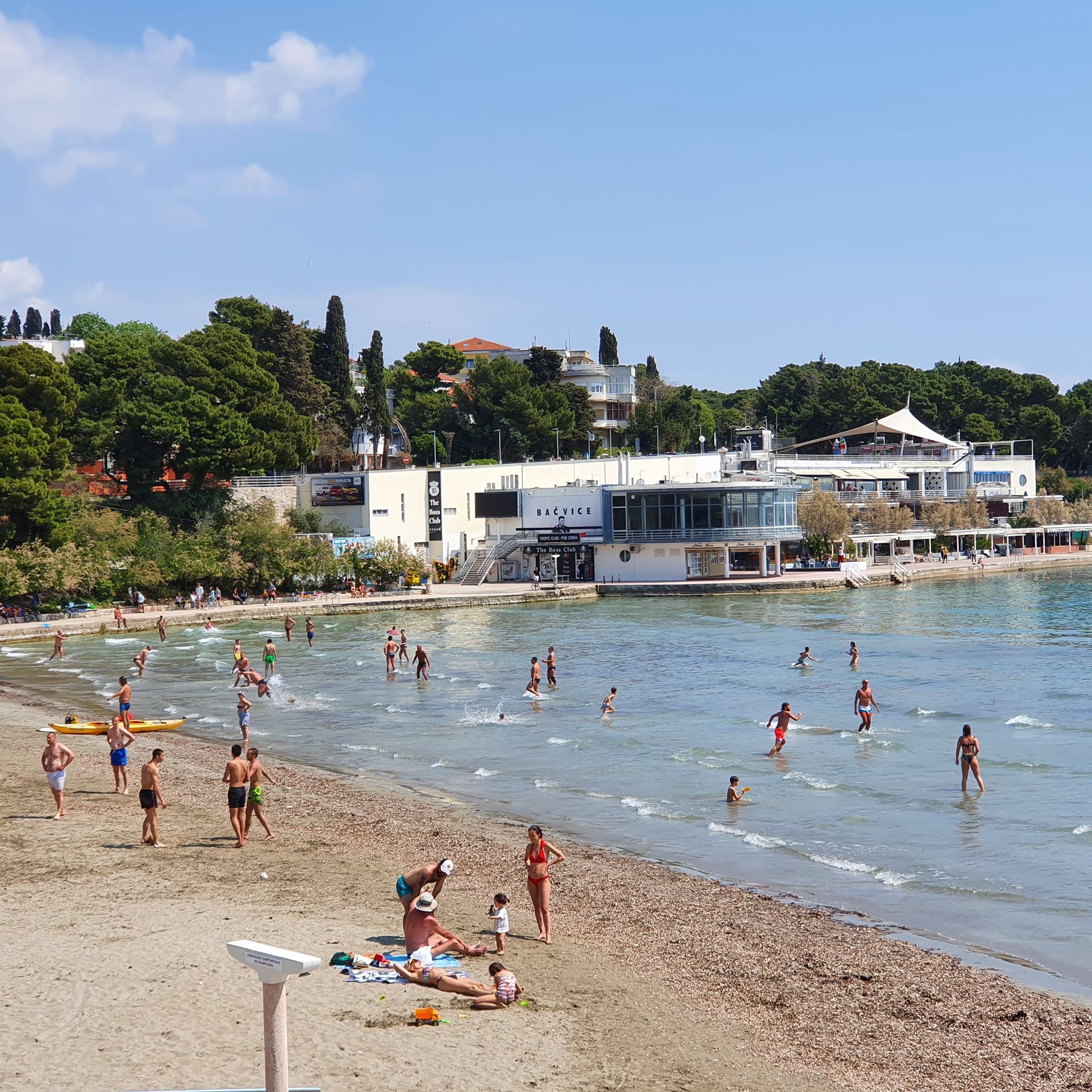
And a busier Bacvice Beach at the first sign of warmer weather.
To read more about lifestyle in Croatia, follow TCN's dedicated page.
Will Croatia Be a Better Place Post-Corona? I am Starting to Believe
April 29, 2020 - With all the health threat of the virus, the economic downturn, and the mental health issues, is it possible that a post-corona Croatia may actually become a better place? I am starting to believe, and I am not alone.
Who is the person that you know who has been least affected by coronavirus? Take a minute to think, and while you do, let me tell you about my legendary punac (father-in-law), Franko. For he is a key piece in my thinking that the post-corona Croatia could, should and may even become a much better Croatia than the one we have at the moment. In order to explain the rationale for my thinking, I need to tell you a little about my punac.
Franko certainly didn't have it easy in life, and yet I have never heard him complain about his lot. One of 10 children in the village of Brusje on Hvar, Franko had to walk the 6 km to school in Hvar Town each day, and the 6 km back home again. Clothes were handed down and food was scarce. Luxuries were even rarer, and he has never been one to waste a single thing in his life.
He saved a small amount of money about 50 years ago and bought 360m2 of agricultural land on a hill filled with trees overlooking the old town of Jelsa. Everyone thought he was crazy and was throwing his money away.

But Franko knew what he was doing, and he had a longterm vision of the future. Piece by piece, floor by floor, he slowly built his family house, complete with apartments for rent, the income from which funded the construction of the next floor. It was all done without credit, year by year.
War came in 1991, and Franko bought a plot of land to grow food to feed the family in case the inevitable wartime shortages became a reality. He has come to love that land (and the adjacent plots he bought in subsequent years) and spends hours there every day. Almost 30 years later, it provides much of the food that is feeding the 7 of us during the corona crisis.
Having put all four of his children through university - an opportunity he never had himself - and with no debt to worry about, life goes on pretty much as before. Tourism will be down this summer, but the fundamentals of life - a healthy lifestyle on a beautiful island he rarely leaves, with home-produced food, wine, olive oil - remain.

I have tremendous respect for my father-in-law for all he has achieved from such a humble start, and I do sometimes wish he had got a son-in-law who was a man of the soil, rather than this fat beer-drinking blogger.
My punac is proof that one can have a healthy and fulfilling life in Croatia based on self-sufficiency and buying local.

This theme of buying local is gathering pace all over the world, as corona has forced us into a thorough reexamination of almost every aspect of our lives. Enforced self-isolation and reevaluation of our lifestyles has been a cleansing experience for many, who have realised how little they need to survive, and how much excess stuff in their lives is totally unnecessary.
Certain things will change forever perhaps, such as increased health precautions and much less travel, but corona has also brought plenty of positive things for Croatia, especially if its people seize these opportunities from such an unexpected source. I for one am increasingly hopeful - almost expectant now - that the post-corona Croatia will be a better place for us all to live. There are several aspects to my optimism.
Buy Local and Let Slavonia Feed Croatia and the Region Once More
Yesterday I did my first Zoom video interview of my life, one of my new TCN realities. It was with a farmer/businessman in Slavonian whose family has been producing and processing food for almost 40 years in the region which once fed not only Croatia but also much of ex-Yugoslavia. I can't wait to publish the interview and story, as it was one of the most interesting I have ever done, and in it, we discussed the differences of growing food in Slavonia when it was the breadbasket of the region, and food production in Slavonia today.

"Could Slavonia once more feed Croatia, and maybe its neighbours too," I asked.
"Yes."
Obviously the solution to make that happen will involve a little more than the word 'Yes', but think about this for a minute. The era of tourists sending their cash en masse and all we have to do is wait for them to come over. Let's forget everything in the past and look at Croatia today.
Could it feed itself? Yes.
One of the big positives of this crisis has been the number of people who have started to buy local. Small OPGs are making their products available via social media, and people are ordering. Here on Hvar, there is a great online delivery option for local products, which covers Hvar, Vis and Solta. That crazy man from Djurina Hiza in Varazdinkse Toplice, Nikola Bozic, has been racing around the country delivering top-quality steaks and other premium OPG products.

More and more people are coming round to the idea of growing and buying local. Croatia has excellent quality food, and more and more people are realising the insanity of importing products when we can grow them for ourselves. I think it was Karlovac County which last week announced funds for developing unused arable land. Technology is the friend of #BuyLocal, and new distribution networks such as that being developed by Nikola Bozic, will only make Croatia's excellent local produce more available to the end-user.
Getting Croatia's agricultural capacity back to where it was will not be easy, but it is also not impossible. With so much unemployment looming, it will generate jobs - and eventually exports.

Life is FINALLY Not So Comfortable That Croats Will Protest
About 18 months ago, I wrote an article called Could Croats Ever Unite if They Were Not Under Attack? This is a country which can get 550,000 people on the streets of its capital to welcome back its World Cup heroes, but nothing remotely similar in size when it comes to protesting. Croats have SO much to complain about with the way this country is run, and they DO complain SO much - in cafes and with its massive army of keyboard warriors. But to get them to physically march on Zagreb and protest and demand change? It just doesn't happen (or very rarely and in much smaller numbers).
And one of the reasons for that is that life in Croatia is actually TOO comfortable for many. Croatia has one of the highest rates of homeownership in the world, which is comforting in times of crisis. It also has many, many people who live off tourism and make enough in 4-5 months a year that they do not have to work for the rest of the year. And while the homeownership and ability to grow food remains, that easy income has gone - probably forever for many.

With up to 300,000 job losses predicted in response to the initial government economic measures, it was clear that not only was life about to get less comfortable, but tough enough for Croatians to be p*ssed off enough to do something about it. One of the best initiatives in recent years in Croatia has been the Glas Poduzetnika Association (Voice of Entrepreneurs), a rallying base for the private sector which has almost 60,000 members, and which has already achieved much success with its concerted pressure on the government for effective measures and reforms. You can follow their progress in the dedicated TCN section.
Mainstream media are now actively leading campaigns for Reforms Now, with this article from 24Sata, for example, a great overview of the choices which face Croatia - Croatia Can't Wait Any Longer, Reforms are Needed Now.
King Vili the Prototype, Time for the Next Generation Politician
Ask the man on the street in Croatia about how competently the Croatian Government would handle the corona crisis before it started, and you would not have felt reassured. One of the best things that happened to Croatia is staying safe was the removal of the previous health minister on January 27, 2020, due to alleged (my new favourite word) irregularities with his property portfolio. Croatia got a new health minister, Vili Beros, and a new type of minister - dedicated, qualified, determined, transparent, communicative, approachable. There are perhaps only a handful of countries which have handled the health threat of corona as well as Croatia, and the example of Beros and his team has shown that something is possible which one rarely sees - a minister working for the people and not for himself.
And having seen it, the current mood of the country will demand more of it. Uhljebistan is a beast, and it will take more than corona and economic catastrophe to kill it, but there has never been a better chance to push for change. Remove Uhljebistan, go back to Croatia's roots with an engaged diaspora willing to invest, and the future of Croatia is incredibly bright.

Transparency in the Digital Post-corona Croatia 2.0 - an Accelerated Process
The fight against Uhljebistan has an increasingly powerful ally - digitalisation and transparency. This crisis will only accelerate the digitalisation of Croatia, as well as removing the need for so many processes, which are not only inefficient, but also come with health (infection) risks and help fund Uhljebistan. The era of bloated bureaucracy and those beloved stamps was already on borrowed time, but now that people see that it is not only easier to do so many things online, but also much more efficient, the process of establishing a post-corona digital Croatia 2.0 will accelerate.
I was joking with my kids the other day that when I went to school, we used chalk and a blackboard. It is something they remember too, of course, but will kids in 5 years? The enforced adaption of online schooling has broadly been a big success, and it offers some intriguing possibilities moving forward, both in the development of homeschooling (currently illegal in Croatia) and access to better education from other countries.
And more transparency and digital tools will reduce the ability of Uhljebistan to extort its funds quietly as it does now.
From a Mass Tourism Economy to Agriculture, IT and Elite Tourism
Croatia has an IT sector which is full of excellence and competes on the global stage in many aspects. This again is largely home-based and local, is set to expand and generate great income for both Croatia and its IT entrepreneurs. Put the Croatia today aside for just one moment, and imagine a new model (IF we can get rid of the bulk of Uhljebistan), and I would see it looking a little like this.

1. An agricultural sector which employs many, feeds the country, as well as generating exports, with a home delivery system bringing the finest Croatian quality direct to your door.
2. An IT sector which will flourish, allowing Croatia to create jobs locally and generate significant income.
3. A country where mass tourism is a thing of the past, where locals can afford to enjoy a quieter coast at more reasonable prices.
4. A country whose outstanding natural beauty is one which is a magnet for eilte, not mass tourism. And let's not forget medical tourism, another untapped jewel in Croatia's armoury.
5. A country whose outstanding natural beauty and unique and chilled lifestyle make it a haven for digital nomads and remote workers - a niche which is set to explode in the coming years.

A country which will rely on itself and its own resources, in which there will be many happy people in their local community, just like my punac Franko.
And how much damage will all this cause the environment compared to our current practices and strategies?
Will Ultra Europe Go On? Latest News and How Concerts Might Look in Croatia After Corona
April 29, 2020 - How will concerts look after corona? And will Ultra Europe go on? A closer look at the entertainment industry in Croatia.
"The government of the Republic of Croatia could and should show goodwill for the controlled but urgent return of music to both terraces and concert venues," Croatian musicians said.
Slobodna Dalmacija writes that for this reason, the Croatian Music Association 'Unison' sent a letter to the Government, the Civil Protection Headquarters, and the Croatian Institute of Public Health, with five proposed models for the return of live music performances.
"Opening music studios for recording and production, concerts on terraces and open spaces such as squares and waterfronts, drive-in concerts, indoor and open-air concerts," is a list of proposals by Unison. This umbrella band brings together associations of composers, performers and their services for the collective exercise of copyright and performing rights. With the implementation of the proposed models, 17,000 people - music creatives and their families - would again be able to return to pre-pandemic coronavirus status.
At present, there are approximately 5,000 writers, 10,000 performers, and approximately 2,000 supporting musicians and technical staff involved in the concert and performing activities in Croatia. Live music, Unison points out, has seen a huge drop in business, but also a drop in revenue by one hundred percent over normal conditions. Therefore, musicians must return to performing as quickly as possible and in customized operating conditions for the following weeks and months.
Music creatives and all those whose jobs are related to the industry are calling to join the first wave of relaxation measures, Unison said, as restrictive public gathering measures have hit the music and cultural community first and foremost in the past six weeks. At first, for security reasons, as live performances on terraces, concerts and stadiums were canceled and banned, followed by measures for all other branches of the economy.
What will the live performances look like in the life that follows the coronavirus pandemic?
First of all, they believe that music and film studios for recording and production should be open, since recording at home and semi-professional or amateur quality cannot permanently replace the professional mode and the required studio quality of production.
"The current mode may meet the market's need for new works in the short term, but it will soon be saturated with such products because this mode has no economic or financial impact for participants," Unison said, noting that it could immediately start recording with 2-3 people in the studio, from May 11, and those with multiple members (up to 10 people), and from May 18, with orchestras and choirs.
According to the instructions of the Civil Protection Headquarters, which stated the possibility of opening terraces at hotels and catering facilities for the needs of domestic and possibly foreign tourists, the possibility of holding concert performances of bands should be approved from May 11 (or from the moment of their opening) and DJs (for simpler technical needs for music production) in such venues. Musicians, they believe, could also perform concerts in squares or waterfronts in tourist sites, with mandatory adherence to space, defined by the positions in front of the stage, and epidemiological measures.
Similar to the principle of religious services, musicians have been demanding, from May 4, that concerts be held indoors during which it is possible to ensure mutual physical distance while respecting epidemiological guidelines.
They suggest the ability to hold concerts with a limited number of visitors up to 150 (separated by space tags - flags, stickers on the floor, ribbons ...) or by seating, which would be held in substantially larger spaces, with a usual capacity of 300 visitors upwards. They propose the same for larger spaces, which can accommodate 200 to 2000 people under standard conditions, and now the maximum number of visitors would be 150 per event.
Starting May 18, they would also like to have the opportunity to host major concert events (for more than 150 visitors) in large concert venues such as gyms and similar venues that otherwise have a capacity of 2000 people upwards.
For the summer of 2020 (from June onwards), it is proposed to return to open-air concerts such as Ultra Europe in Split, where audiences would attend concerts in groups of five or ten people in large and open areas. Service and hygiene activities could be conducted on a line-by-trade basis, respecting all epidemiological measures.
The official website of the Ultra Europe Festival, scheduled for July 10, 11, and 12 at the Split Park Mladezi, is just 73 days away, which has brought party-goers from all over the world to Split in recent years. This is a type of music event associated with large sponsors because of production costs, but also because of larger audiences. Few believe that it will take place.
However, the organizers of Ultra are reluctant to make an official announcement yet - and have not canceled its July release, as have most other summer festivals. Everyone is off to a slow start, waiting for when and to what extent restrictions will be eased. Some European countries have already given new guidelines. For example, in Norway, until September 2, the ban on all public events with more than 500 spectators has been extended.
This uncertainty also plagues the director of the Split Festival, Tomislav Mrduljaš, who is preparing the jubilee, 60th edition of the Split Festival. It is scheduled to take place July 2-4 at Prokurative.
"I am waiting for what will happen with the new measures ... I have not canceled anything yet, the competition for songs is ongoing, we will decide in early May. As far as I'm concerned, I have the whole structure and organization of the festival set up, so it won't be a problem to hold it," Mrduljaš said. "The new, looser measures would be one light at the end of the tunnel. For the sake of cheering people up a little... The festival is held in the open, I think something could be done here," said Mrduljaš.
To read more about lifestyle in Croatia, follow TCN's dedicated page.
Coronavirus: Could Croatian Tourism Traffic Drop by 70 Percent?
As Gordana Grgas/Novac writes on the 28th of April, 2020, Croatian tourism has been dealt a severe blow owing to the ongoing coronavirus pandemic, and various experts currently estimate that tourism turnover in Croatia will fall by 60 to 70 percent when compared to last year, with revenues dropping by a massive 70-80 percent.
Employment losses of 30-50 percent will occur in Croatian tourism-related sectors (although this will be greatly affected and influenced by state measures and grants). The business operations of collective types of accommodation facilities, primarily hotels, will be jeopardised until a vaccine for the COVID-19 virus is found, and the reason is the high concentration of guests typically staying in these facilities.
This is all part of an analysis conducted in the second half of April by the investment banking department of InteCapital and HD Consulting entitled "The Croatian Tourism Sector - Can it Cope with the Coronavirus?", showing the status and potential impact of COVID-19 on Croatian tourism and its many related sectors.
They stated that the highly reputable consulting firm, Tourism Economics, predicted that a six-month restriction period (from February to July) would result in a 28 percent drop in overall European travel (in addition to other economic effects), while an eight-month restriction period (from February to September) would result in a 48 percent decline. The worst case scenario is that the anti-epidemic restrictions will only be lifted by the end of this year, which could result in an enormous 81 percent drop in travel in Europe.
In previous crises, according to this analysis, what is known as ''V-shaped tourism'' has proven to be one of the most resilient sectors with a relatively rapid return to pre-crisis levels.
"The COVID-19 crisis brings an additional level of uncertainty with it in the context of the global level of travel due to a potential change in the behaviour and preferences of the average traveller or tourist," they note. However, they believe that Croatia has one good opportunity here: it can take advantage of being a dominant auto destination. Until the invention of the coronavirus vaccine, tourists will be motivated to keep all the elements of their travel plans under control, so it's to be expected that destinations that can be reached easily by car from other countries will recover more quickly from the COVID-19 crisis than others.
Croatia should also take advantage of the fact that it boasts the most stringent anti-coronavirus measures in Europe (research by Oxford University) for future marketing purposes in regard to Croatian tourism and luring guests. Of course, immediately after the crisis, the focus should also be on the domestic market, where the possibility of issuing vouchers to residents should be properly explored.
The top ten Croatian tourism companies had about one billion euros in business income last year, holding about 18 percent of total accommodation capacities in Croatia and boasting as many as 18 thousand employees, with pre-tax profit, interest and taxes of about 380 million euros and investments totalling 318 million euros.
The list includes the following Croatian companies: Valamar Riviera, Luksic Group (Blue Laguna and Adriatic Luxury Hotels), Maistra (including HUP-Zagreb), Arena Hospitality Group, Liburnia Riviera, Blue Sun, Solaris, Jadranka Group, Falkensteiner and Turisthotel.
They have taken a number of different operational and strategic measures to minimise the coronavirus-induced crisis, including shifting their investment focus to investments in health and hygiene aspects and IT (digitalisation resulting in reduced contact, personalisation targeting younger guests, and monitoring guest health and safety) as well as repositioning camps, as they believe this segment of Croatian tourism will recover the fastest.
What should hoteliers operating within the Croatian tourism sector primarily focus on after the COVID-19 crisis?
The focus should be on improving personal protection and hygiene measures in hotels, more stringent operating procedures to increase productivity - process automation, monitoring new segments and targeted advertising - especially for the younger population, monitoring changes in guest behaviour and habits, and applying new marketing approaches, investments and the repositioning of self-contained accommodation units, such as apartments, villas, tents, mobile homes and campsites, and additional IT investments (digitisation, and big data for the purpose of better customer segmentation).
Given that investment bankers were involved in the analysis, it is understandable to note in the end that, unless the Croatian tourism sector recovers and returns to its ''historic'' levels, there will be "a potential need for recapitalisations from 2021 onwards."
Otherwise, during the 2009 global financial crisis, Croatian tourism was reportedly not significantly affected - overnight stays and arrivals in Croatia fell by 1.4 percent and 2.9 percent, respectively. In the case of COVID-19, and due to travel bans and restrictions until we find a vaccine, the collapse in overnight stays and arrivals could be significant and lasting, thus affecting business and financial results well into 2021 as well.
Make sure to follow our dedicated section for all you need to know about coronavirus in relation to Croatia. For more on topics like these, follow our business and travel sections.
Cleaners Decry Site's New Rules, Lamenting the Reality of Hygiene in Corona Era
April 28, 2020 — Private accommodations along the Adriatic may have to ditch their usual post-checkout cleaning practices to continue using online booking services. Gloves may be worn and then tossed, hands washed repeatedly and disinfectant maniacally sprayed. The early days of tourism during the coronavirus era offers new, still-evolving protocols that may slice into profits even in the best of seasons. Hosts and cleaners along the Dalmatian coast suggest they might be shuttled into hibernation, or worse, close up shop.
New hygienic protocols, like cleaning recommendations Airbnb released on Monday, are designed to lure travelers by highlighting accommodations' cleanliness. The voluntary and extensive to-do list reportedly reads like an obsessive-compulsive germophobes' ritualistic scrub-down, but following it earns a prominent certification which could innoculate against rampant vacancies. The company argues hosts will benefit from the positive feedback of providing clean accommodations while guests will rest easy knowing their room is thoroughly disinfected.
But at the other end stand private cleaning services and hosts along the Adriatic, who consider the measures cumbersome, excessive, and costly.
"It is, in my opinion, pure nonsense," Mira Barbarić, owner of "Čisto," a cleaning services company, told Slobodna Dalmacija, among others who complained to the paper. "I clean as I always clean. I don't know what else I can do that's better than what I've been doing until now, except drew my soul out of my own body. All this together is on the verge of madness."
Barbarić and other cleaning services are sometimes a one-person operation, arriving at apartments just as guests checkout. They transform into a whirligig of spray bottles, vacuums, rags, and mops as they prep for new guests scheduled to arrive in a few hours. All of that work may not be enough anymore.
Airbnb announced its Enhanced Cleaning Initiative on Monday, creating a de facto checklist for all hosts which will affect the flow of guests to their homes. The crib-sheet reportedly reads like a minimal routine at a healthcare facility. Rigorous hand washing is followed by donning personal protective equipment (disposable gloves, masks, and aprons) and opening all doors and windows to let through a breeze.
Surfaces must first be cleaned with water and detergent (or soap), then sprayed with disinfectant which stands for a few minutes before being wiped dry with disposable wet wipes or paper towels, if possible. (Cleaning rags are allowed, but must be clean).
Linens and towels should also be washed at higher temperatures while wearing disposable gloves. Then, empty the vacuum cleaner after each cleaning and disinfect it.
Barbarić said a market already awash in black-market exchanges and deals will only grow thanks to this measure and thinning wallets. She's been in the business for 15 years, currently charging about 70 kunas an hour but expects it to fall.
"Anyone who is relatively healthy can take a cloth and clean," she said. "Of course, someone who has no money won't call the cleaning service."
Airbnb said its protocols align with recommendations from the US Centers for Disease Control and Prevention, as well as epidemiologists and companies in the hygiene and hospitality sectors. Hosts can enroll in the program and earn a certification which signals to guests they're adhering to the new guidelines.
Airbnb's initiative is voluntary for now, but the certification inherently incentivizes enrollment, since guests will likely seek certified accommodations.
The crux of the guidelines for hosts lies in the waiting period after checkout, where a room remains untouched for 24 hours first before cleaning begins. The recommendations follow epidemiological suggestions to reduce the odds of renters contracting a previous occupant's illness. The measure eliminates the chance of stacking guests in rapid succession, building immovable vacancies into a host's schedule.
Many hosts and cleaners rely on razor-thin margins, high volume, fast turnover, and low overhead to turn a profit. Every night a room stays vacant is a loss. In the corona era, that will happen more and more often as online travel agencies and short-term rental apps continue searching for some semblance of normalcy (and revenues) during the coronavirus era.
From Split to Sydney: Water Polo Olympian's Dash to Beat Flight Lockdown
April 28, 2020 - What to do when you are an Australian water polo player living in Dalmatia and preparing for Tokyo 2020 as the European flight ban loomed? Nathan Power on his whirlwind life change from Split to Sydney.
For the last four years of my life I have had the pleasure of living in Croatia. That was brought to an abrupt, unceremonious ending due to the COVID-19 outbreak. I had been playing water polo professionally in Croatia, first for VK Primoje Rijeka and then three years with VK Jadran Split. 2020 was intended to be a big year for Jadran as it marks their 100 year anniversary. Our season had just gone into an international break when the outbreak was blowing up in Italy. We had been on a great stretch of games, including two wins in our final two games against big name team Jug Dubrovnik and Szolnok. Confidence was high and the anticipation was that we could use the free month for hard training, while the various nations yet to qualify for the Olympics were competing, and then we would return to games and make a strong push into the finals.
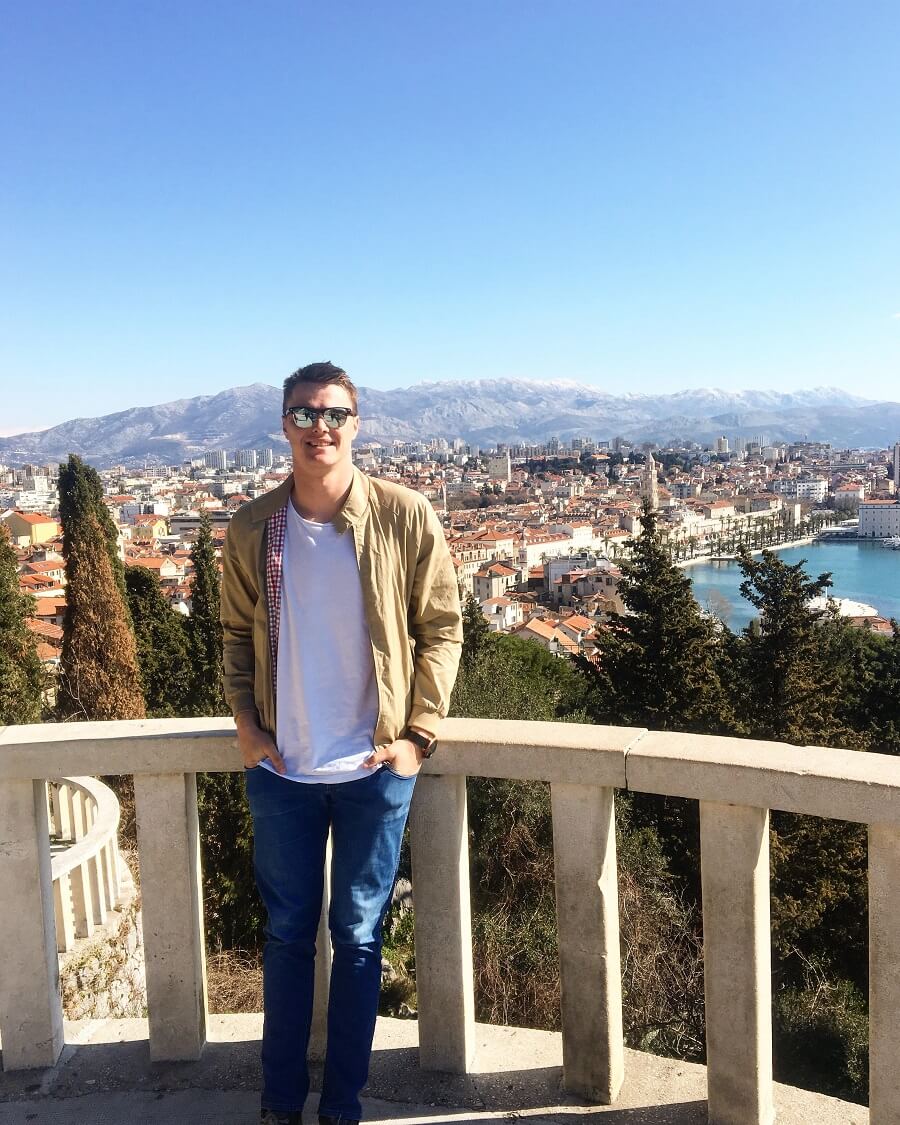
Because of the scheduled break in the season, my girlfriend and I had planned a weekend getaway to London. The plane was half empty, the airports barely populated and the security checks at Heathrow were insanely quick. These were all a touch harrowing because while the rest of the world had begun feeling the effects of the coronavirus in how their day to day lives were affected, life in Croatia at that point was still regular programming. Although for all the alterations to our travel experience, London was still fully functioning. We were very lucky to be able to attend the Premier League match that we had come to see, given it was the last match day to be played, even luckier that it was a 4-0 victory to Chelsea.
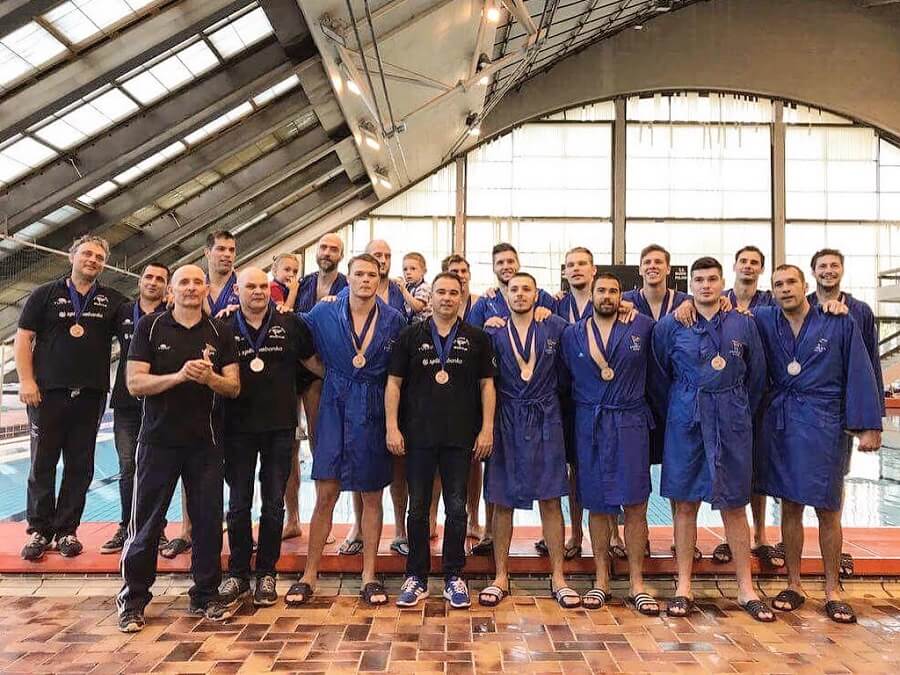
When we returned to Croatia there had still been no movement towards a lockdown from the government, however, my Jadran coach had shifted training to once a day which felt like an ominous sign of what was to come. By the end of that week, it became official that sporting teams and competitions were to stop for an indefinite period. As the Olympics, at that time, were still to proceed, this meant I needed to get myself back to Australia so that I could continue my training.
On a Monday afternoon, we booked my flight for Wednesday morning, just 40 hours away. However, as news broke on the Tuesday that the EU would be closing its borders by noon on the day of my flight (which was meant to leave Zagreb for Doha at 2:30 pm), I needed to find an alternative, which really only meant me leaving ASAP.
My girlfriend and I scrambled to find flights, most of which meant me bussing to Zagreb that night and leaving the European Union on any flight possible Wednesday morning. I called the Australian Embassy in Croatia to see if they had any information, and with so much confusion about what was to come, taking the risk seemed like the best thing to do. I had the Australian Water Polo Federation write me a note requesting my arrival back in the country just in case.
The next 15 hours were spent packing up my life in Croatia and the Split apartment I had been living in for the last two years.
In what was a whirlwind of emotions, I was finally beginning my departure at 5 am on a Wednesday from the country I had called home for 4 years. What made this so much tougher was that there were so many friends I had been unable to say a proper goodbye to.
The flying experience on my London trip had been different but nothing like what it was a week later as I tried to get home to Australia. As I flew the day the EU had shut its borders, naturally, there was so much uncertainty and nervousness around how commercial airlines would react. It was scary to see how poorly executed some of the security measures were at airports. In Doha we disembarked our plane from Zagreb and got onto a bus, only for it not to move for the next hour as the 1 doorway they had set up for health screenings was overwhelmed with passengers. To be crammed onto a bus at such close quarters for so long seemed the peak of stupidity, raising the risk of potential transmissions, when the health check was only relevant for passengers staying in Doha of which our plane had one. My flight to Sydney felt different to any flight I had experienced before. There was an air of relief and small joy permeating through the cabin as everyone on board was an Aussie returning home, knowing they could be with their families for the tough period that lay ahead.
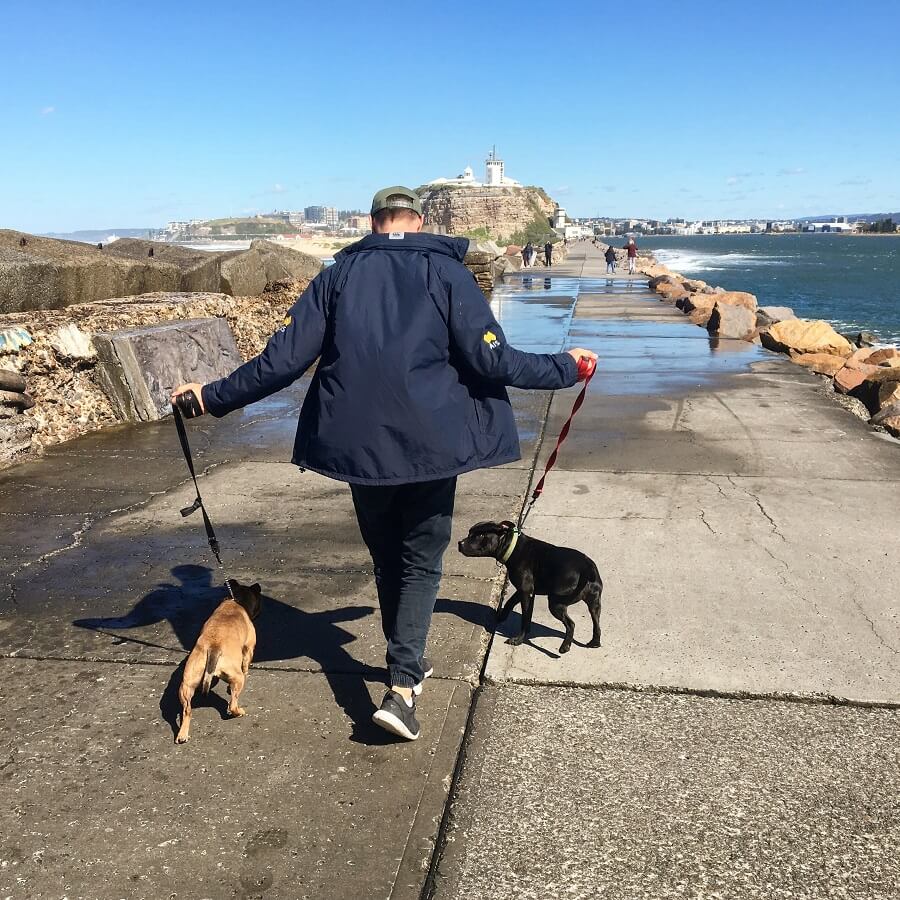
When I landed I was immediately taken home to Newcastle where my two weeks of self-isolation was to begin. The first week I was able to use the Olympics as a motivating factor and it sped fast, however at the beginning of the second week the announcement was made to postpone the Games and I was left looking for a new motivation to get me through. By the time I was out of isolation, Australia had also instigated the social distancing rules that remain in place currently. It is a surreal feeling for me to be home and not burdened by responsibilities yet still be unable to see my closest friends. Like everyone else, I’m looking forward to when we can start getting some semblance of normalcy returning to our lives. Until then, it’s a matter of staying healthy and keeping distant.
For the latest on coronavirus in Croatia, follow the dedicated TCN link.

